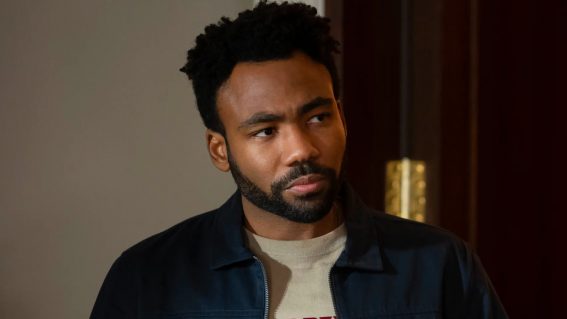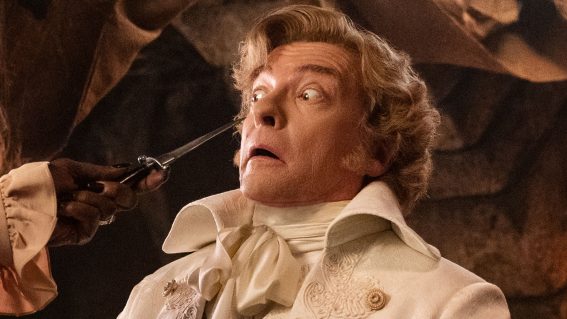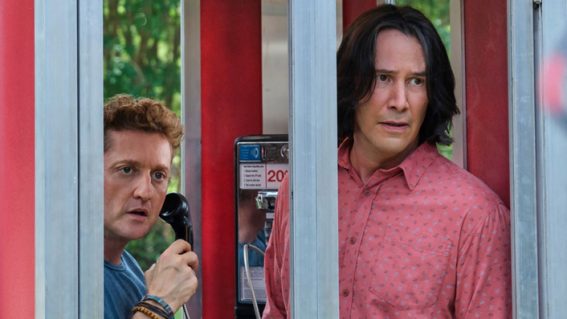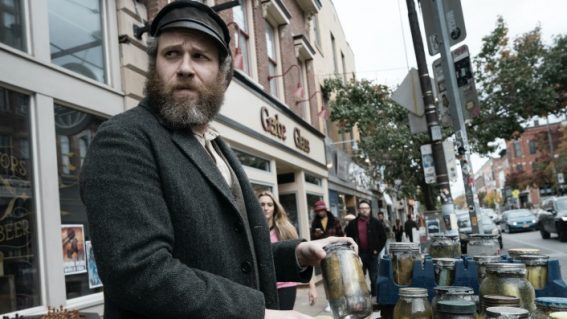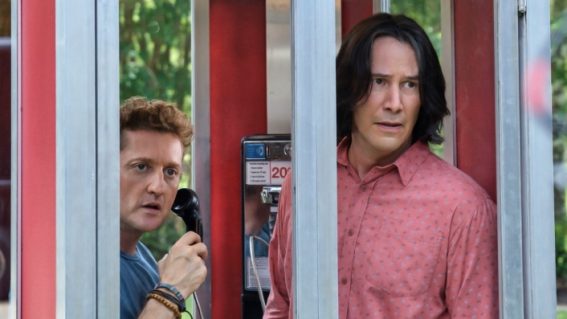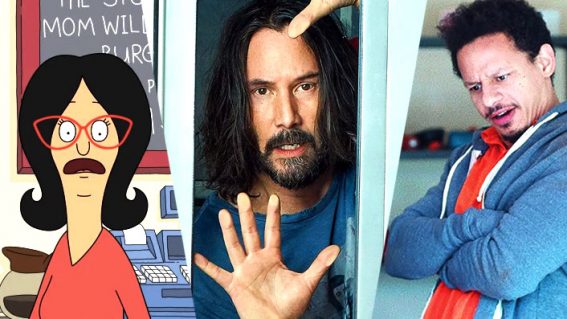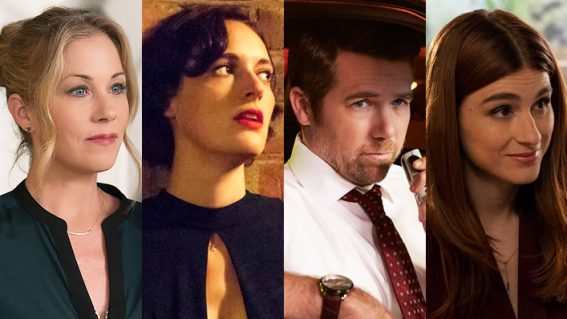Archive of capsule reviews for comedy movies
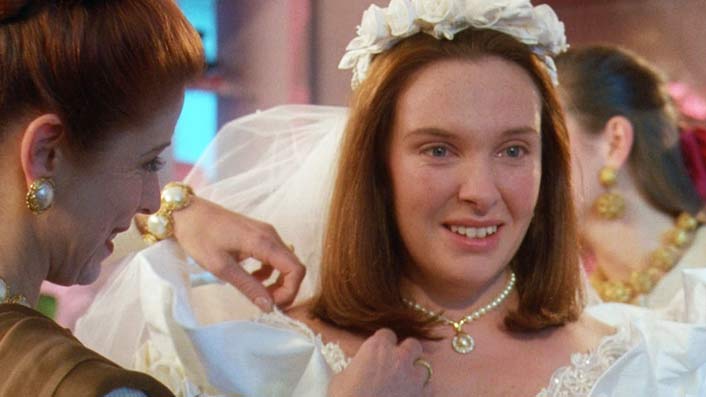
Below is an archive of capsule reviews of comedy movies, previously published on our comedy guide pages.
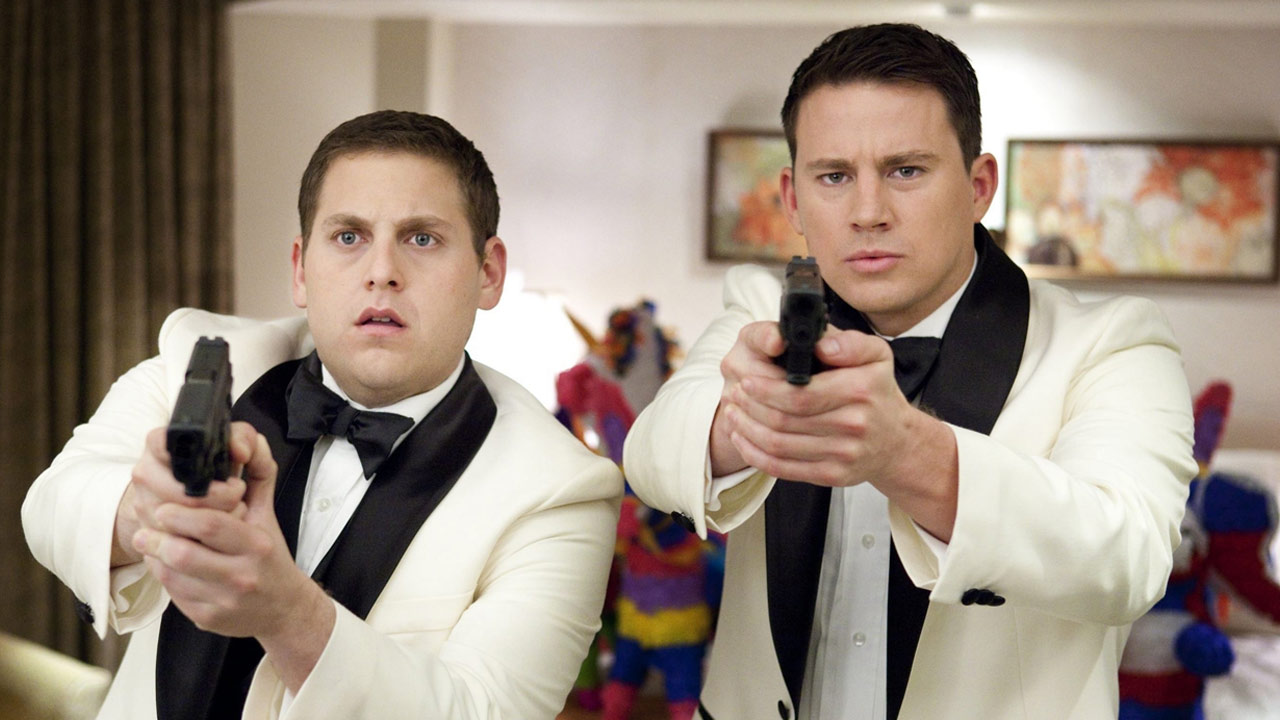
21 Jump Street (2012)
This one was a surprise: a remake of an old TV show that felt fresh and zesty. Two cops—played by Jonah Hill and Channing Tatum—return to high school as under cover students, investigating a popular new drug called HFS (aka Holy Fucking Shit). The tone is anarchic, the jokes consistently funny.
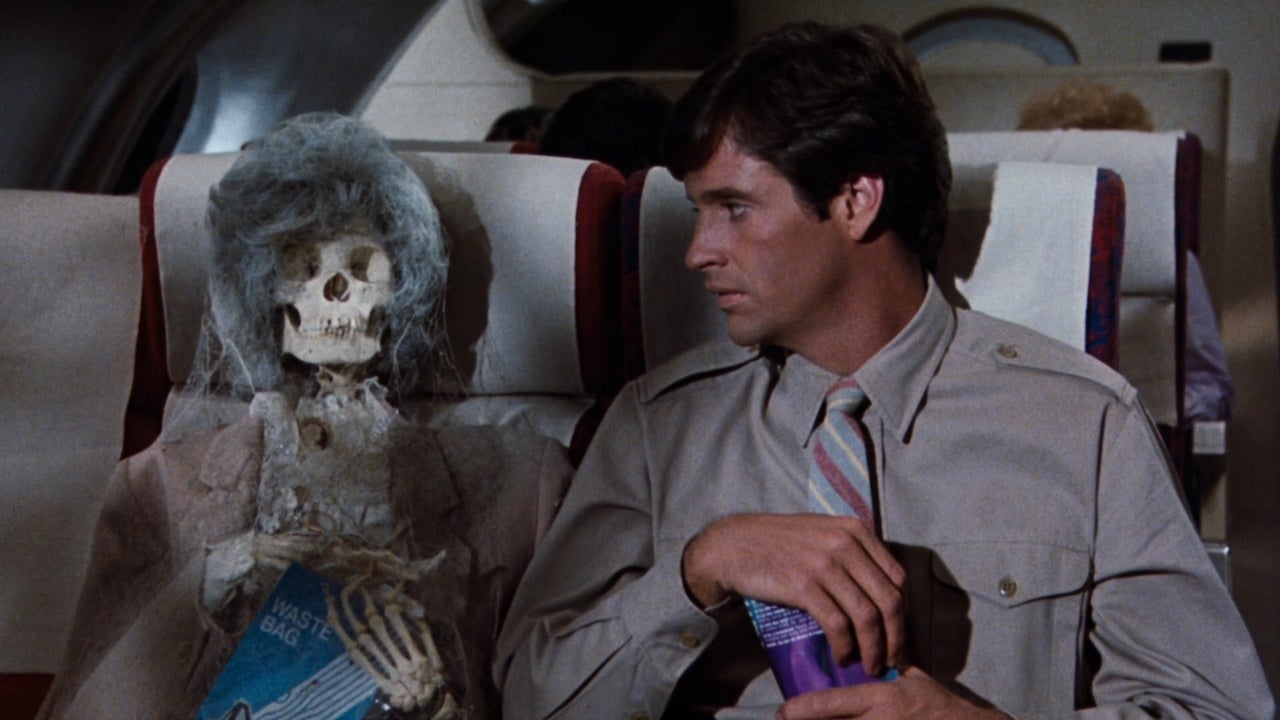
Airplane! (1980)
Airports aren’t funny places and flying isn’t an amusing pastime. But in the hands of Jim Abrahams, David Zucker and Jerry Zucker there’s a joke a minute—sometimes more. Airplane! is a classic example of playing absurd humour straight, in this instance with a surrealistic Buñuelian bent.
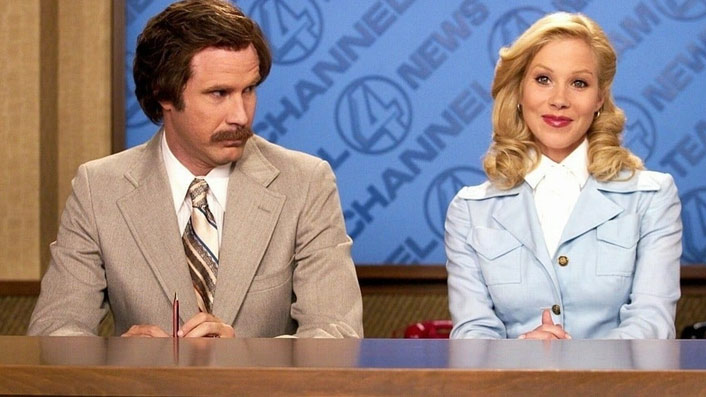
Anchorman – The Legend of Ron Burgundy (2004)
Few films are as memeable, as quotable, or as stupidly enjoyable as Adam McKay’s 70’s-set cult classic about a chauvinistic news anchorman (Will Ferrell) threatened by the arrival of a female newsreader (Christina Applegate). Anchorman‘s shaggy pace works in its favour, giving the performances—particularly Ferrell’s—room to breathe and to settle into a zany, stonerish rhythm. Burgundy became kind of a big deal.
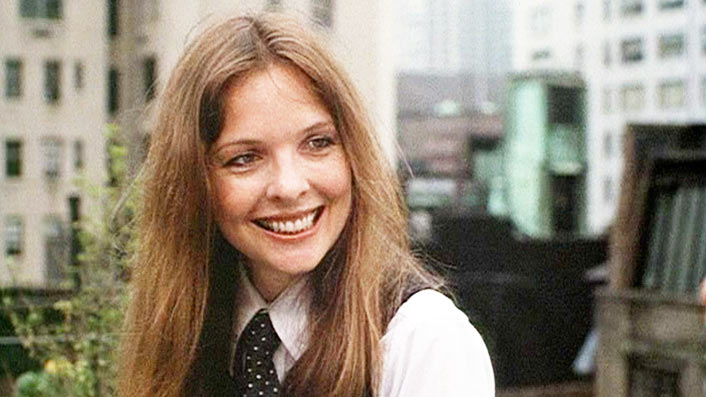
Annie Hall (1977)
Romantic comedies don’t get much better than Woody Allen’s fourth wall-breaking portrait of a fledgling dramatist (Allen) and his free-spirited, aspiring actor girlfriend (Diane Keaton). These days Diane Keaton’s irresistible Oscar-winning performance might be thought of in the realm of a proto-Greta Gerwig—but that would be under-stating it. Annie is one of cinema’s great sweethearts. We all fell for her; she didn’t fall for him.
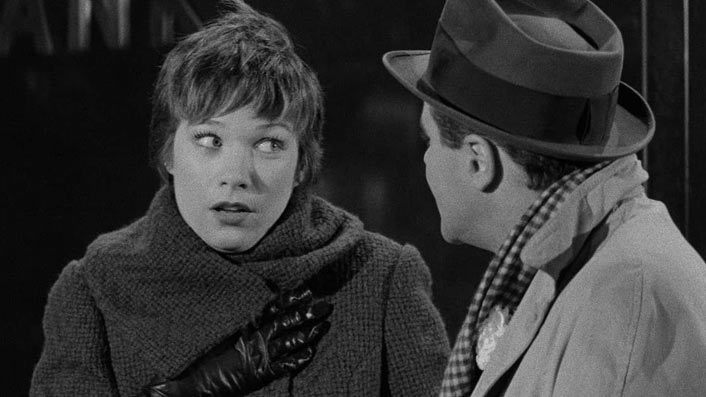
The Apartment (1960)
Corporate ratbaggery, the patriarchy and temptation to succeed via ill-gotten means are key themes in Billy Wilder’s 1960 masterpiece, starring Jack Lemmon as a mild-mannered insurance company employee and Shirley MacLaine as a suicidal elevator operator. Sounds heavy, plays light.
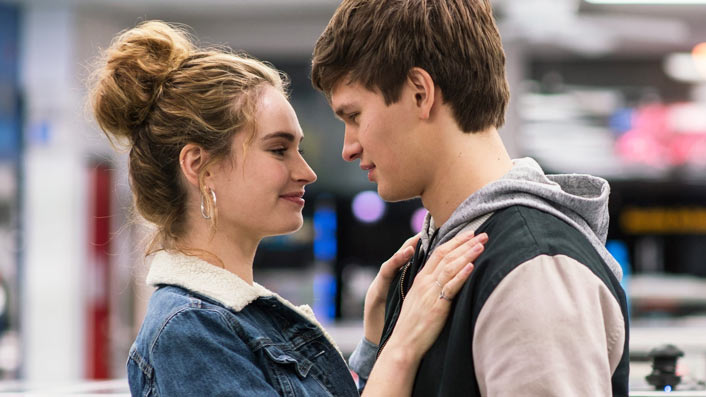
Baby Driver (2017)
Edgar Wright’s sassy crime caper follows a getaway driver (Ansel Elgort) who is on the autism spectrum, putting his foot to the floor only when listening to killer tracks on his headphones. The story of a decent kid embroiled in a life of crime becomes a quasi-musical and a possessed jukebox of an action movie, Wright furthering his already innovative style through playful experimentation with various kinds of rhythm: rhythm of sound, rhythm of images, rhythm of editing.
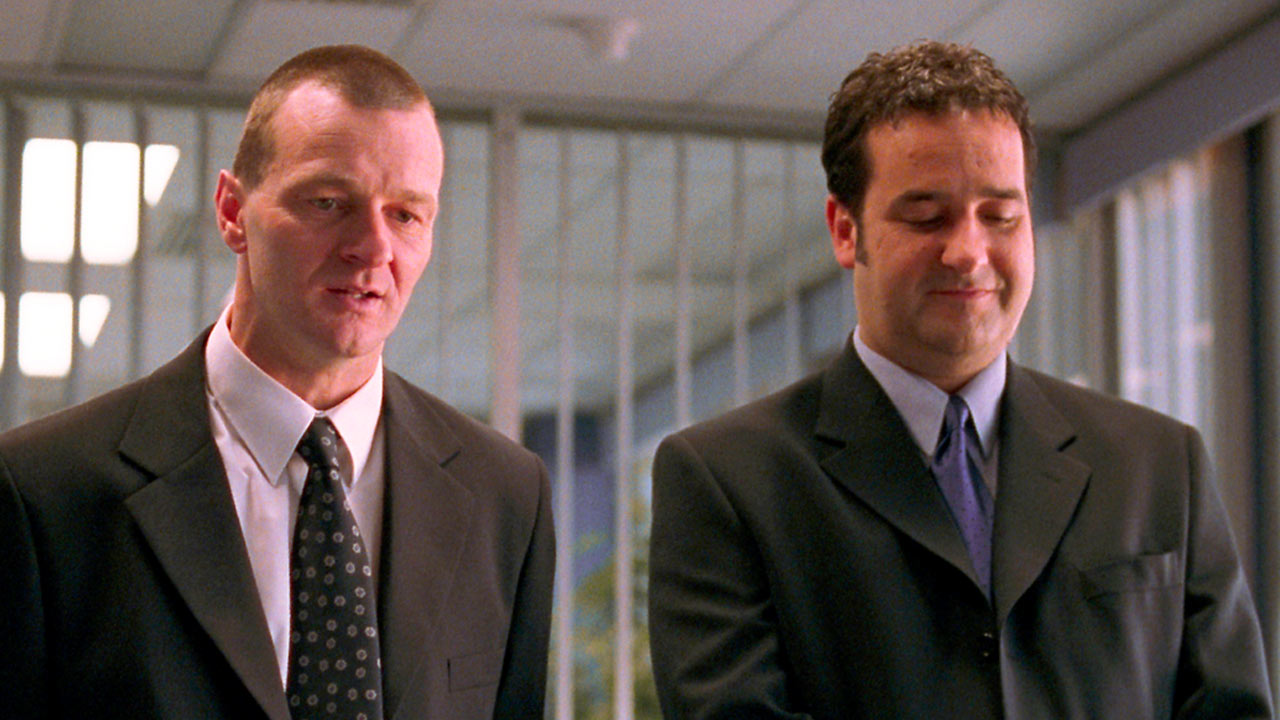
Bad Eggs (2003)
The buddy cop genre is virtually non-existent in Australian cinema—adding curio appeal to Tony Martin’s enjoyable caper about two idiot detectives who get to the bottom of high level corruption. They’re memorably played by Mick Molloy and Bob Franklin, who are quick to drop a true blue turn of phrase; at one point Molloy yelps “fuck me rigid, he’s fair up the clack!”
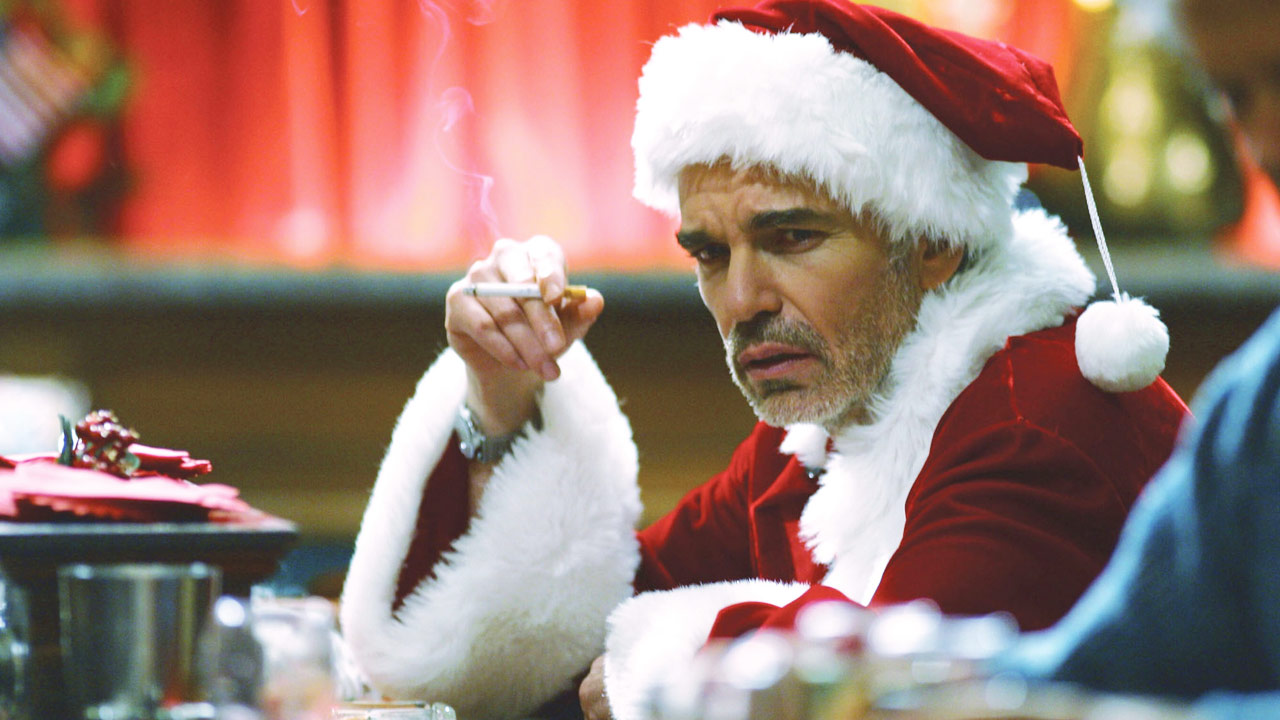
Bad Santa (2003)
From the very first scene, in which the camera crawls along a bar towards a sozzled cigarette-smoking Billy Bob Thornton in a Santa suit, Terry Zwigoff delivers a hilariously lewd heist comedy—and a Christmas movie with a difference. In a totally unsentimental way, Bad Santa reveals a heart buried deep beneath the soiled department story costume, through the story of Thornton’s potty-mouthed crook connecting—for want of a better word—with a sweet and chubby little boy (Brett Kelly).
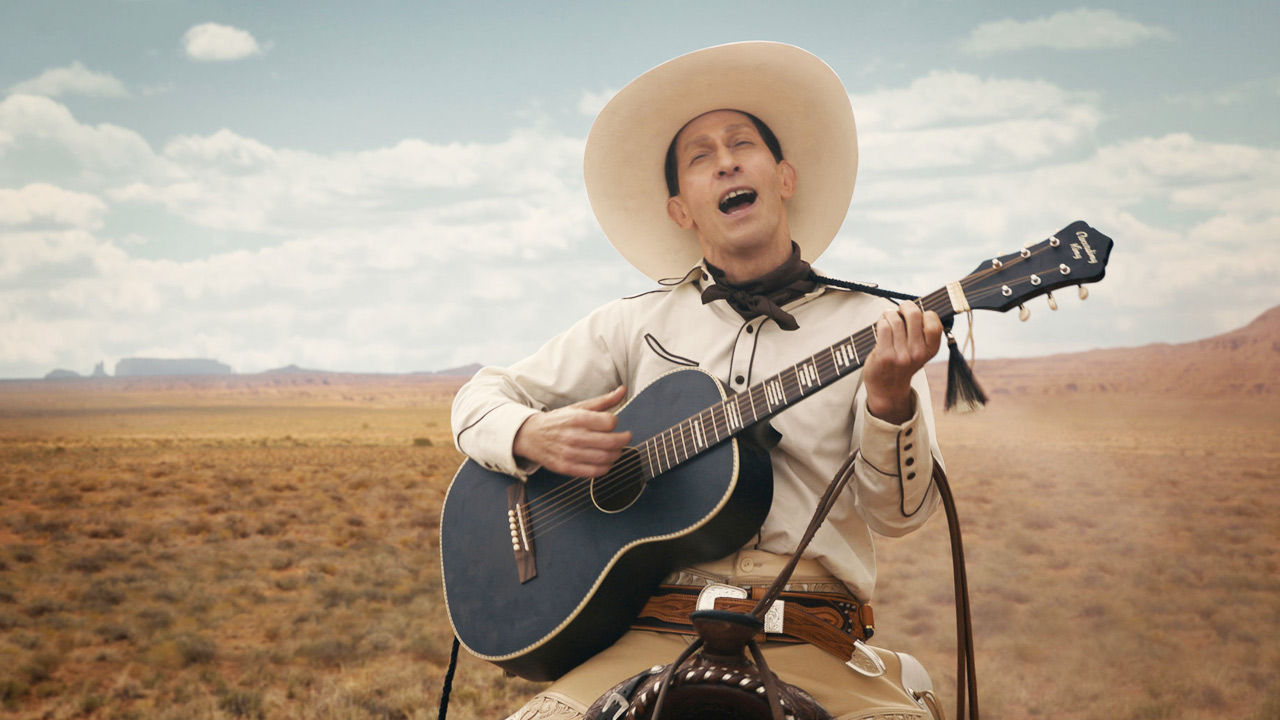
The Ballad of Buster Scruggs (2018)
The Coen brothers’ western-themed anthology movie isn’t always a comedy—but the introductory titular segment certainly is, and hot damn it’s delightful. Tim Blake Nelson plays a singing cowboy and silver-tongued devil who is a ridiculously good gun slinger…but you know what they say about pride and a fall. The vibe is musical jamboree and live-action shenanigans with cartoon sensibility. The remaining chapters vary in tone, from giddily entertaining to slow-moving and profound.
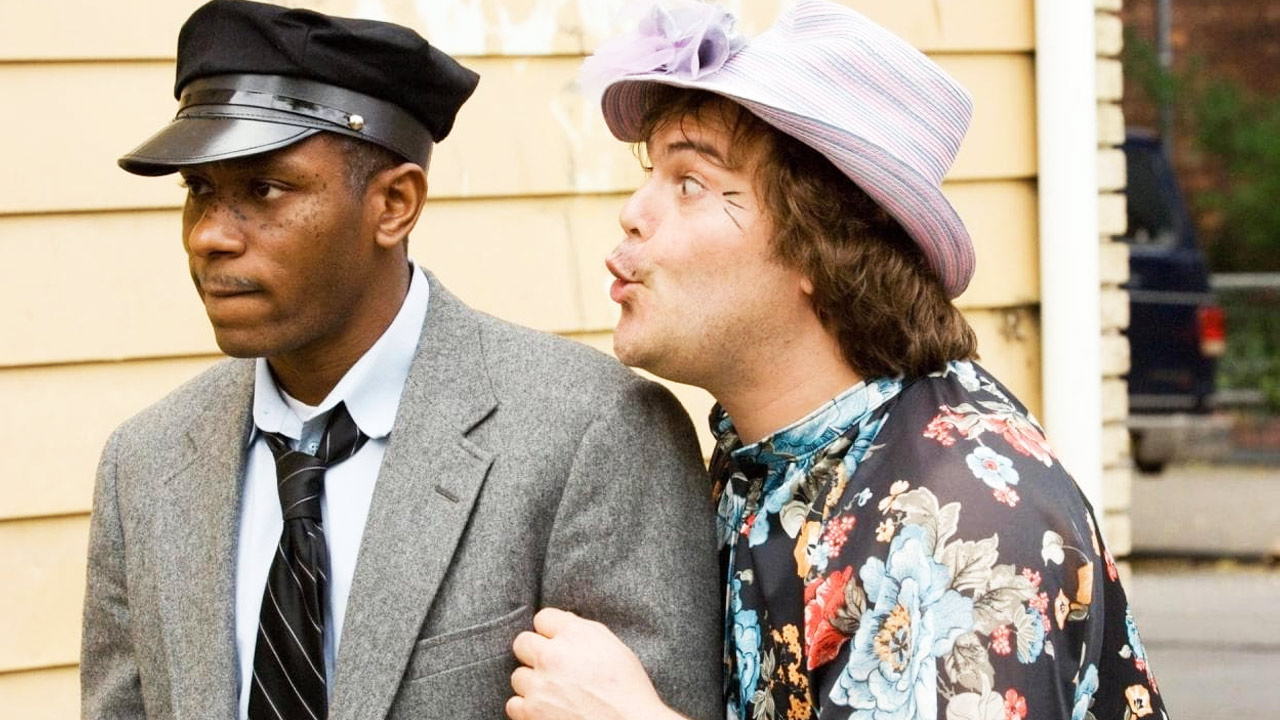
Be Kind Rewind (1988)
Two video store employees (Jack Black and Mos Def) accidentally erase all the shop’s stock, so they create homemade “sweded” versions of popular movies to fool an elderly customer. Michel Gondry builds a modestly inspirational space, tapping into a spirit of celebration and fandom, and using a retro technology to pre-empt a new era of remix culture and IP appropriation.
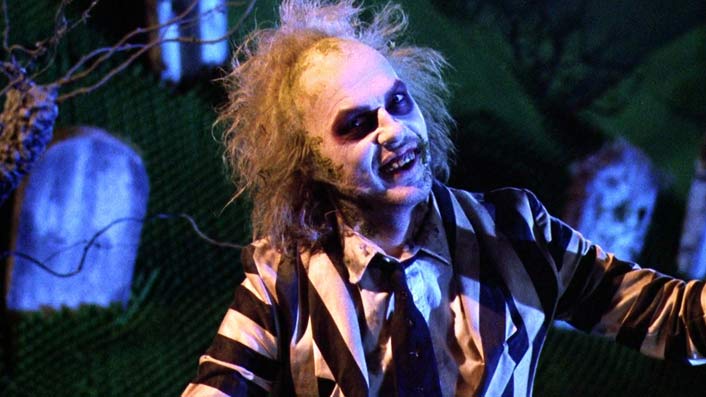
Beetlejuice (1988)
Michael Keaton is manically transformative as a hyper-powered ghoul decked out in a pin-striped Halloween suit, whose house-haunting abilities are sought after by a couple of amateur ghosts (Alec Baldwin and Geena Davis). Tim Burton managed to film what is, in effect, a cartoon in live-action format, stuffing it full of kooky inventions and visual wit.
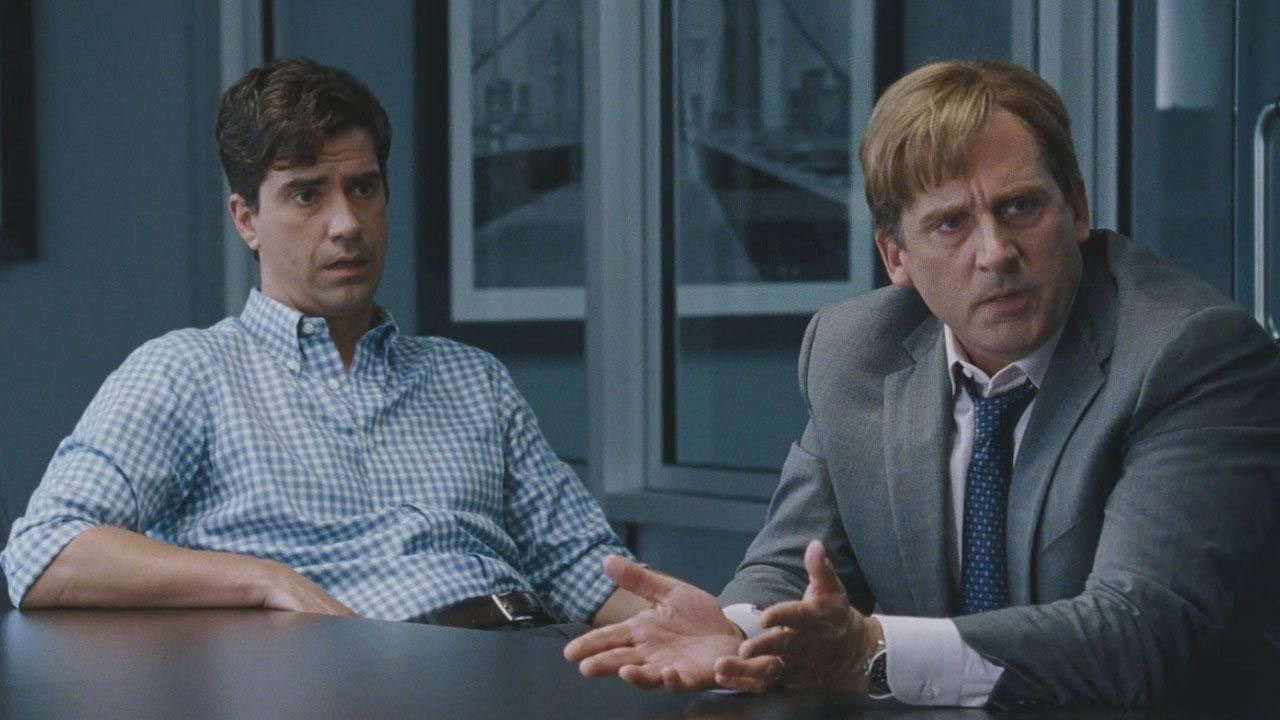
The Big Short (2015)
The core challenge in Adam McKay’s satire about Wall Street sharks (who saw the GFC coming and conspired to profit from it) is to make a dry subject broadly accessible. The writer/director’s everything-and-the-kitchen-sink approach deploys narration, fourth wall-breaking and endless analogies, including the following sage words from Steve Carrell: “So mortgage bonds are dog shit wrapped in cat shit?” It’s structurally messy, but it works.
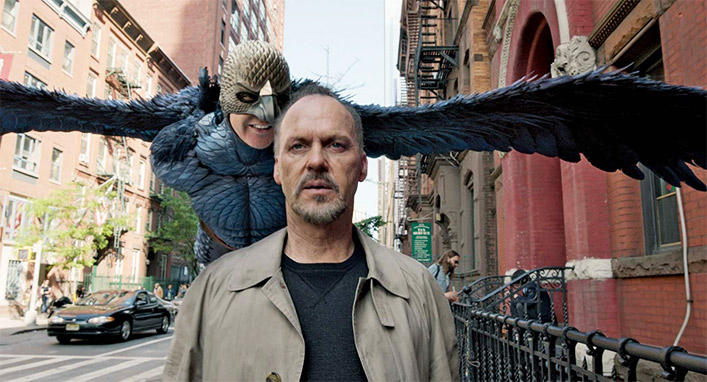
Birdman (2014)
More Michael Keaton! Alejandro González Iñárritu’s angsty comedy about a fading celebrity (Keaton) desperate to reclaim the spotlight unfolds as if it was shot in one long take, which is a particularly interesting choice given the story transpires over several days. Strange, colourful and pretentious, the energy of this film prevails—with Keaton mounting a commendable fight for attention against Iñárritu’s stylistic pizzazz and metafictional derring-do.
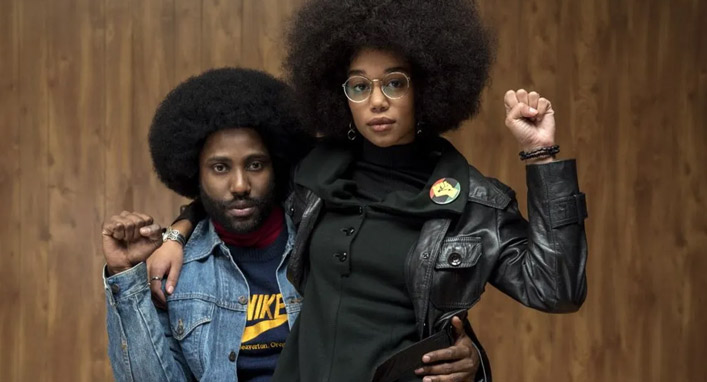
BlacKkKlansman (2018)
There is a dangerous energy in Spike Lee’s adaptation of Ron Stallworth’s non-fiction book about a black detective (John David Washington) who infiltrates the Ku Klux Klan with the assistance of a Jewish colleague (Adam Driver). As a drama the premise is absurd; as a comedy the jokes feel so real it hurts. The director’s scope is wide and ambitious, even revisiting films such as 1915’s Birth of a Nation to argue that racism is core not only to America but to cinema itself.
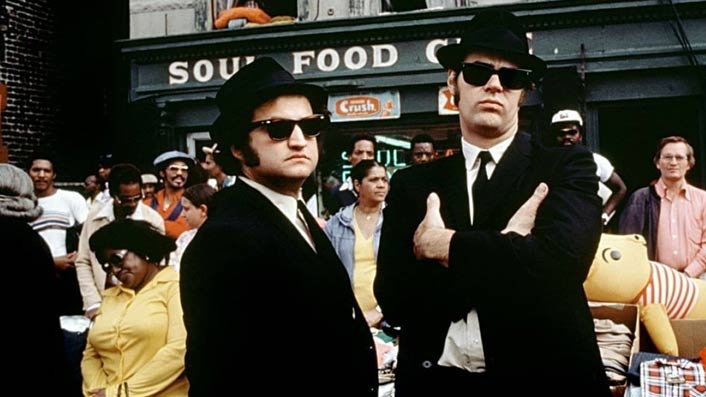
The Blues Brothers (1980)
John Landis’ toe-tappin’ production became such a pop culture phenomenon, so ingrained in the collective psyche, one barely even thinks of it as a movie. John Belushi and Dan Akroyd play two cucumber-cool musos in matching suits, on a mission from God to save an orphanage. And of course to belt out some tunes. It’s dark, and they wore sunglasses.

The Breakfast Club (1985)
Hey, hey, hey hey! Judd Nelson’s unforgettable performance as the rebel John Bender still leaps from the screen all these years after John Hughes’ 1985 school detention classic first checked the roll. But the characters form nothing if not a collective, their starkly and conveniently different personalities (“a brain, an athlete, a basket case, a princess and a criminal”) remaining interesting despite Hughes’ screenplay skittering on the brink of stereotype-oblivion. The rushed saccharine ending was a mistake, but the combination of hi jinks and breezy dialogue form an enduring portrait of good-natured rebellion.
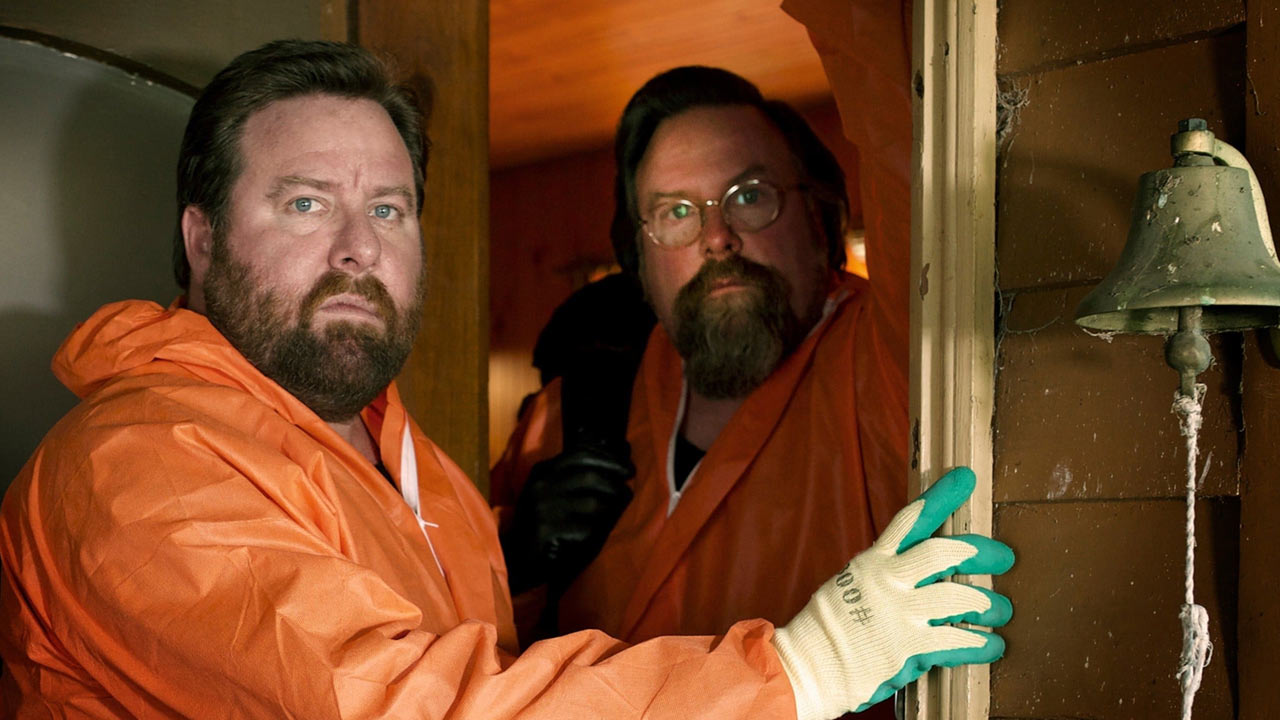
Brothers’ Nest (2018)
Clayton Jacobson’s under-watched Australian chamber piece, starring himself and his brother Shane, sees two siblings break into the house that used to be their family home, preparing to do the unthinkable. Their plan has something to do with their mother’s husband (Kim Gyngell). Brothers’ Nest is funny and sharp, but as this sticky, icky, very absorbingly made experience slides into thriller territory, the humour becomes so black you have to stop laughing .
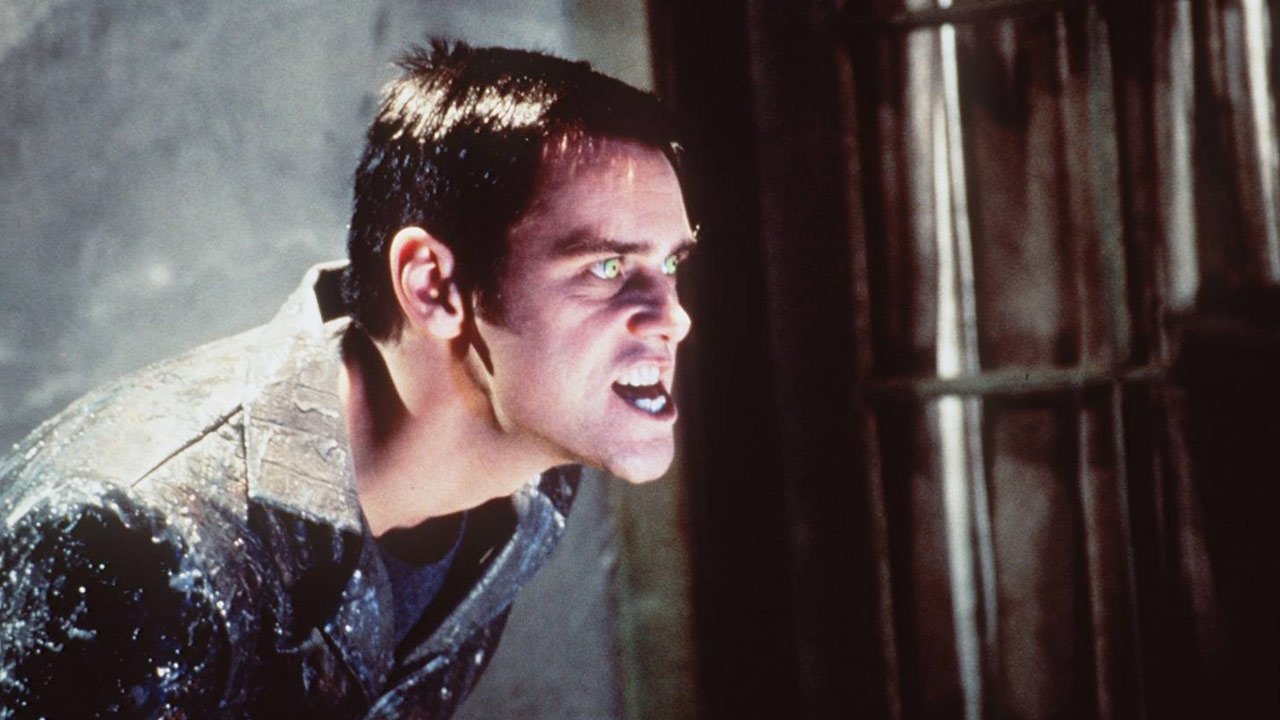
The Cable Guy (1996)
A black comedy; an absurd psychological thriller; an extreme drama about doomed friendship. A characteristically in-your-face, rubbernecked Jim Carrey—high on the fumes of his meteoric rise in the 90s—arrives on Mathew Brockerick’s doorstep, setting him up with illegal cable and integrating himself into the poor sod’s suddenly traumatic life. This Ben Stiller-directed comedy is outrageously tense: can’t watch, can’t look away.
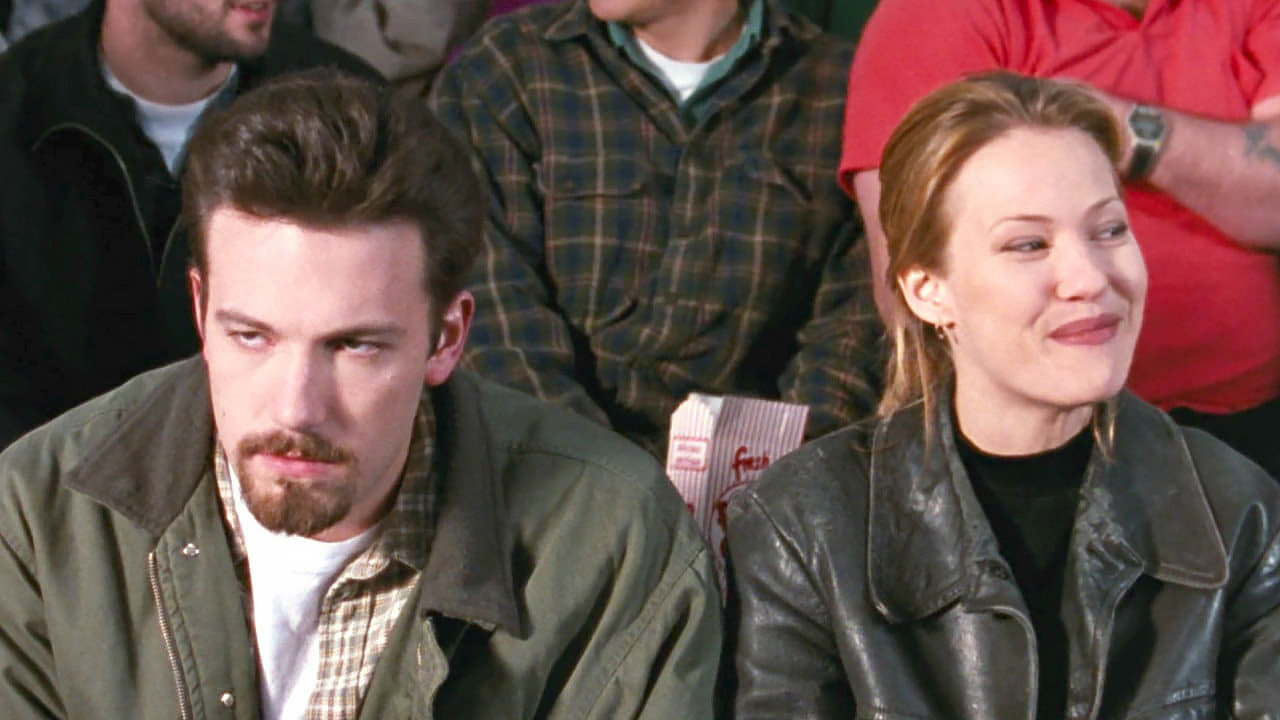
Chasing Amy (1997)
A scene-stealing Joey Lauren Adams sparkles in the titular role in the third film in Kevin Smith’s Jersey trilogy, revolving around three professional comic book writers. The friendship between two best buds (Ben Affleck and Jason Lee) is strained when one of them explores a romantic relationship a woman (Adams) who is gay. Discussions oscillate from pop culture monologues to serious considerations of sex and gender identities—Smith matching crudity with maturity, kink with heart.
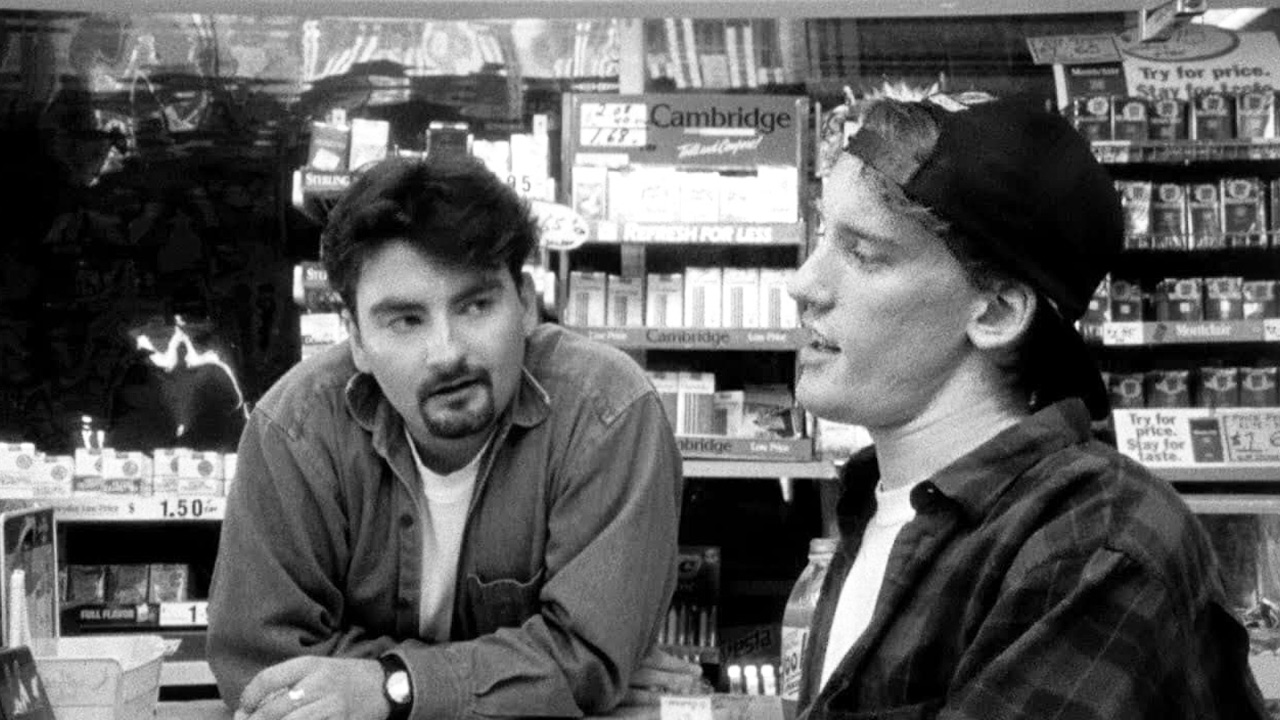
Clerks (1994)
The first of Kevin Smith’s many yak-a-thons is a tribute to slackers and an ongoing inspiration for cash-strapped filmmakers, demonstrating how to turn scrappy low-fi aesthetics into a selling point. The protagonist (Brian O’Halloran) goes to work at a convenience story on what was, famously, supposed to be his day off—accompanied by an antagonistic video store employee (Jeff Anderson). Gags run the gamut, all the way from Star Wars to necrophilia.
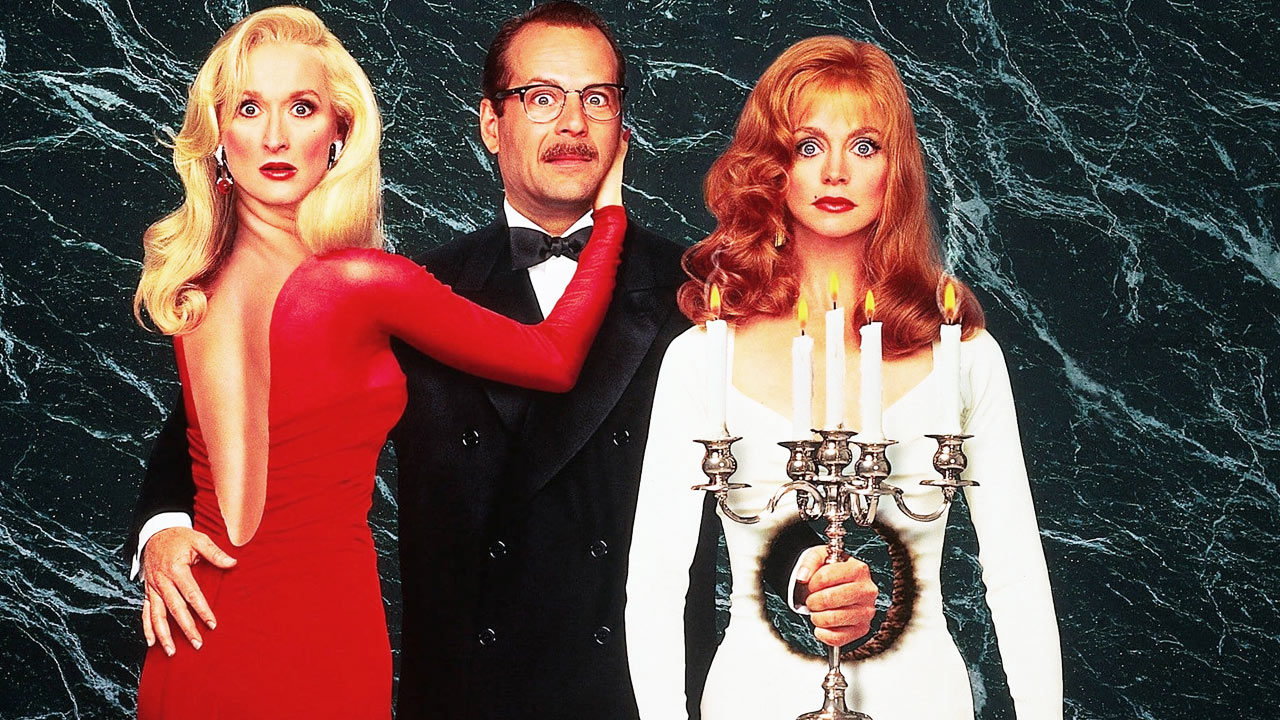
Death Becomes Her (1992)
Meryl Streep’s mega vain actor and Goldie Hawn’s mega vain author sip from the fountain of youth, consuming a potion to live forever—only to find themselves trapped in a comedy that counters the dream of eternal consciousness with the curse of corporeality. The mood conjured by Robert Zemeckis is midnight movie meets cartoon meets shrill melodrama meets showbiz satire.
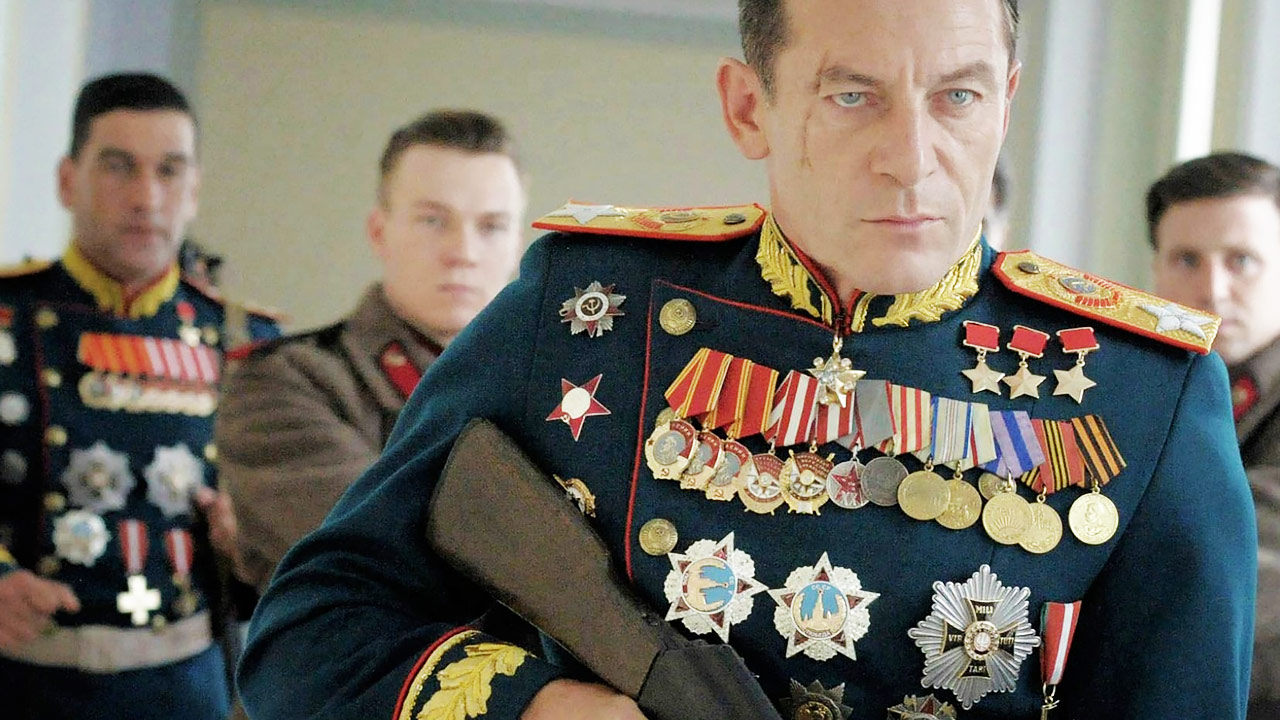
The Death of Stalin (2017)
Armando Iannucci’s ferociously sharp tragicomedy explores, with bone-dry wit, power-grabbing among top-level Russian ministers in the aftermath of the titular event. The drama is farcical; the comedy hurts. Like the British auteur’s also terrific In the Loop, The Death of Stalin has an addictive quality: the more you watch it the better it gets.

The Disaster Artist (2017)
The total absence of talent in Tommy Wiseau—the man who made the legendarily awful The Room—is the source of much humour in this sort-of biopic, sort-of behind-the-scenes commentary on Hollywood, with James Franco playing the flaky filmmaker (and also directing). Franco reminds us that idiots and independent thinkers are not mutually exclusive terms.
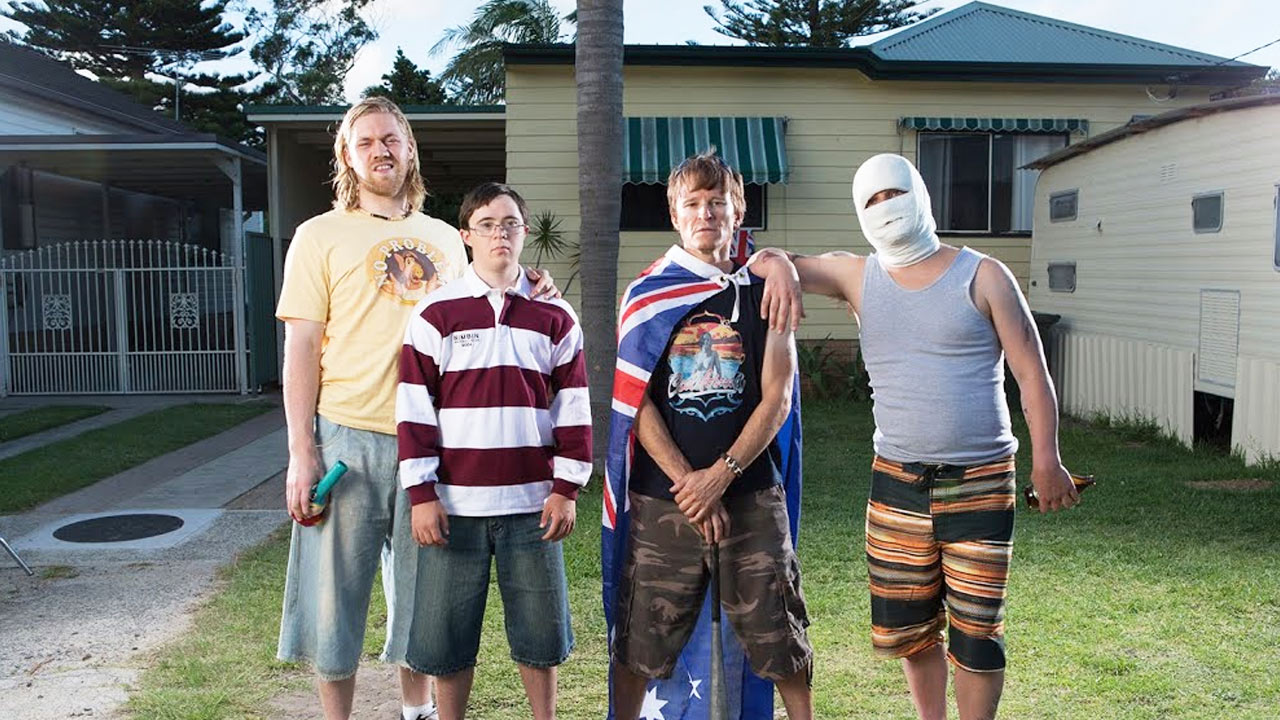
Down Under (2016)
The Cronulla Riots is a tough subject to mine for laughs, but Abe Forsythe does a terrific job in his squirm-inducing satire that begins with news footage of the riots set to the tune of We Wish You a Merry Christmas. The writer/director gets his targets right, focusing on warring tribes of hotheaded young men who are foolishly ignorant and xenophobic. Still, given the event was fuelled by racially-motivated violence, it’s a minefield.

Escape from the ‘Liberty’ Cinema (1990)
A borderline gloomy aesthetic belies the quirkiness of Wojciech Marczewski’s 1990 Polish satire, set in a world where movie characters begin speaking directly to the cinema audience. This bothers the protagonist (Janusz Gajos), a former theatre critic who now heads the Censorship Office. Marczewski uses this weird premise to caution against restrictions on artistic expression (i.e. censorship) as the film breaks down the relationship between viewer and the screen—in its own world as in ours.
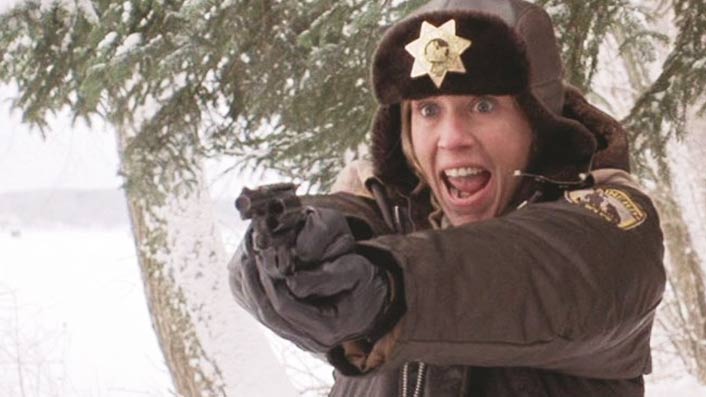
Fargo (1996)
Frances McDormand…what a performance! She is unforgettable and oddly funny as a pregnant parka-wearing police detective in an extremely deadpan film revolving around a bungled kidnapping and an extortion attempt. Fargo is a high point in the career of the Coen brothers, who are among cinema’s very best directing duos.
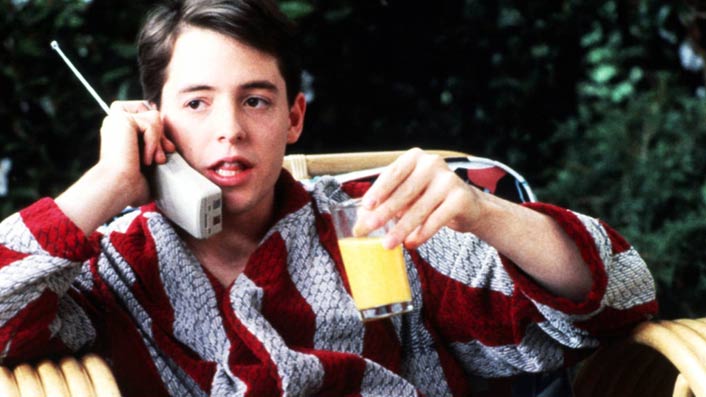
Ferris Bueller’s Day Off (1986)
Bueller. Buelllller. Buellllleeerrr! John Hughes’ 1986 ode to skipping school—starring Mathew Broderick as the famous class-cutting rascal—has obviously aged, and yet its goofy spirit is timeless. It is an ode to nothing, really: other than youth and good-natured, hooky-practicing rebellion.

Frances Ha (2012)
Noah Baumbach and Greta Gerwig’s hipstery slice-of-life dramedy follows a head-in-the-clouds dreamer (Gerwig) coasting—and sometimes literally dancing—between settings and circumstances in New York City. Baumbach’s direction is self-conscious but elegant. To say that Gerwig radiates charm in the lead role is to put it very lightly.

Friday (1995)
Gary Gray’s 1995 stoner classic is audacious in its nothingness, built around two characters—Craig (Ice Cube) and Smokey (Chris Tucker)—who sit on a porch, and sit on a porch some more. The director evokes a powerful sense of place, imbuing laid-back comedy with a strong community feeling. The film is in no hurry whatsoever, slowing the pace of life down to a very chill ebb and flow.
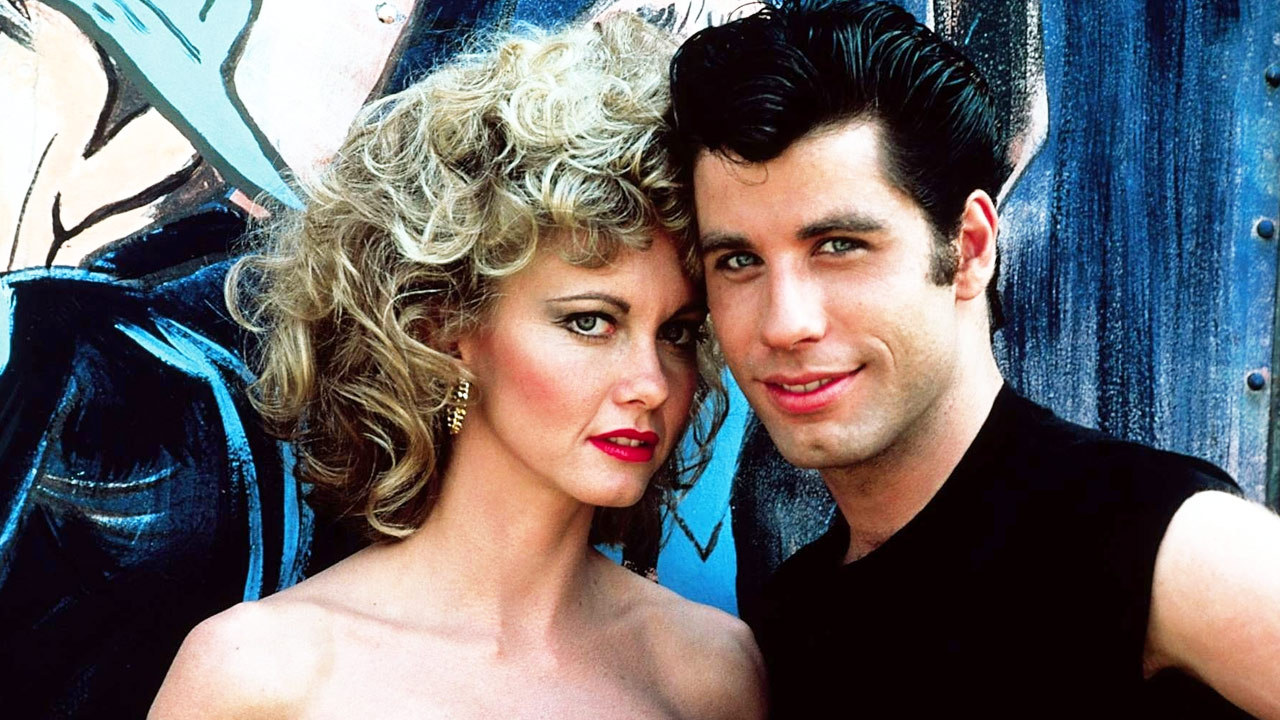
Grease (1978)
Oliver Newton John’s arrival towards the end of Randal Kleiser’s classic musical—dressed in a leather jacket and black spandex pants—is, was, will always be cool. After falling in love during the summer, Danny (John Travolta) prioritises maintaining his bad boy reputation over dating the sweet but daggy Sandy (Newton John). The latter reacts by bringing out her inner bad ass. The songs are catchy and the performances have sass.
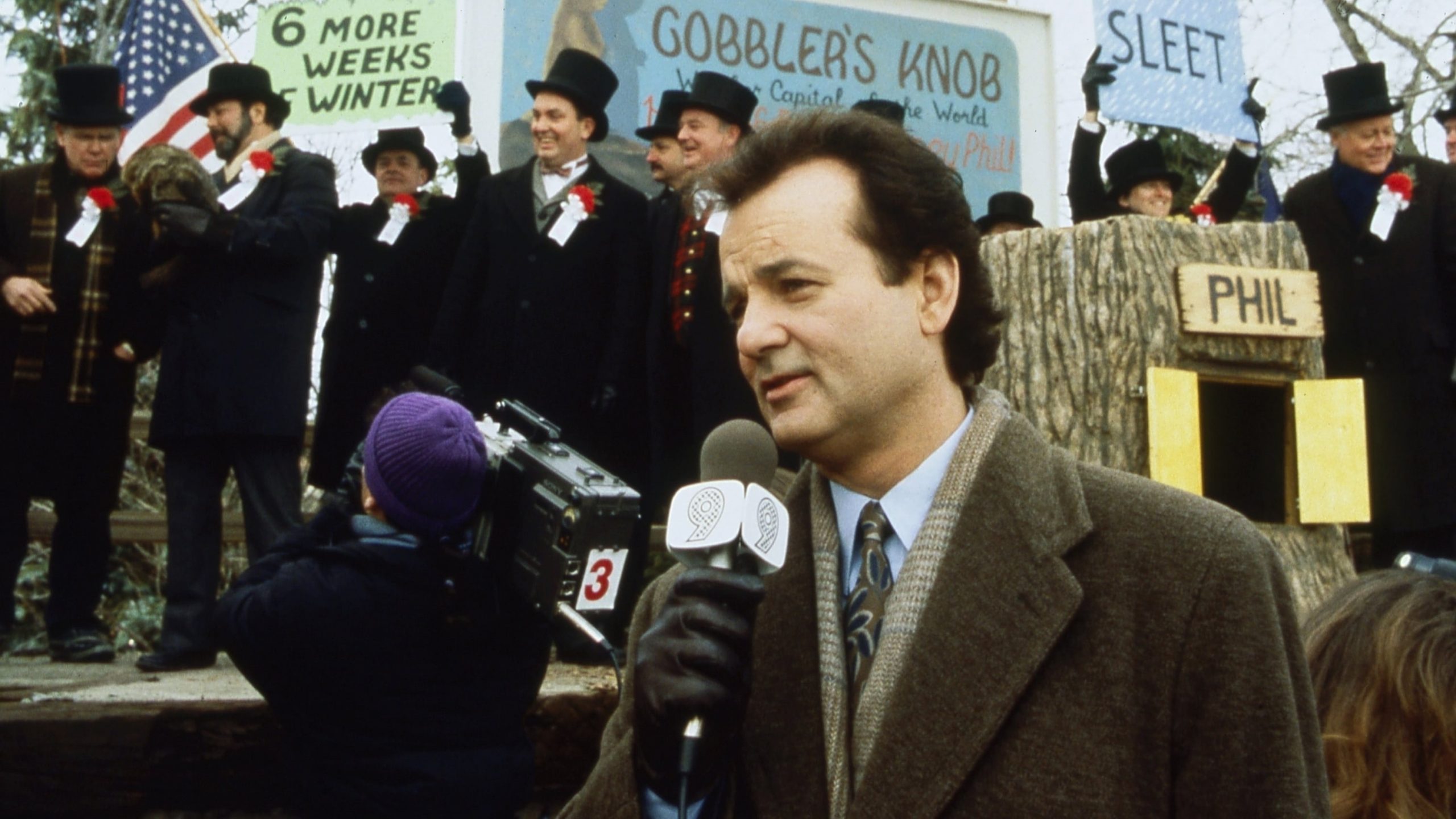
Groundhog Day (1993)
I love the poster tagline for Harold Ramis’ brilliantly innovative comedy: “He’s living life like there’s no tomorrow. Because there isn’t.” High concept movies don’t much shrewder than the story of Bill Murray’s cranky, borderline nihilistic weatherman, forced to live the same day again and again in a crummy snowed in small town. It’s the grand daddy of the time loop movie: often imitated, never matched.
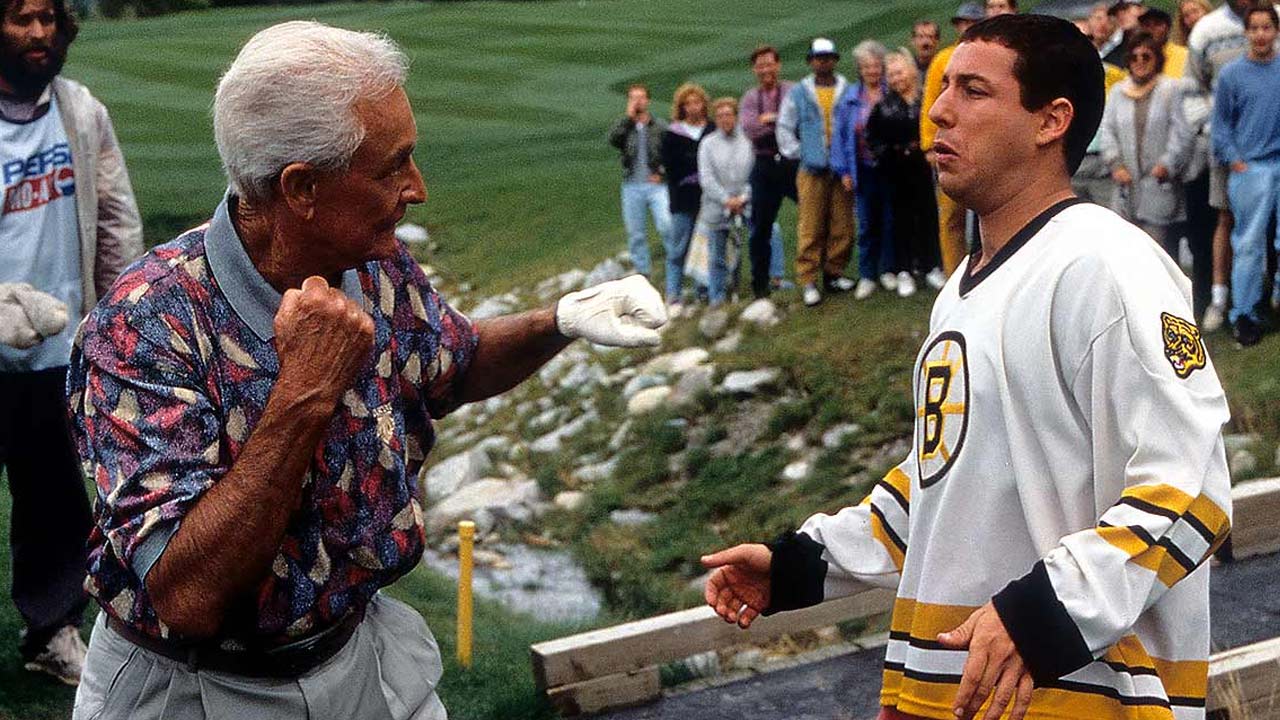
Happy Gilmore (1996)
The pretentiousness of golf collides with the dunderheadedness of Adam Sandler, in a comedy about the pain of watching somebody being naturally very good at something others have to work hard for. Happy Gilmore is smarter than its given credit—with a few things to say about snobbery and class divide.
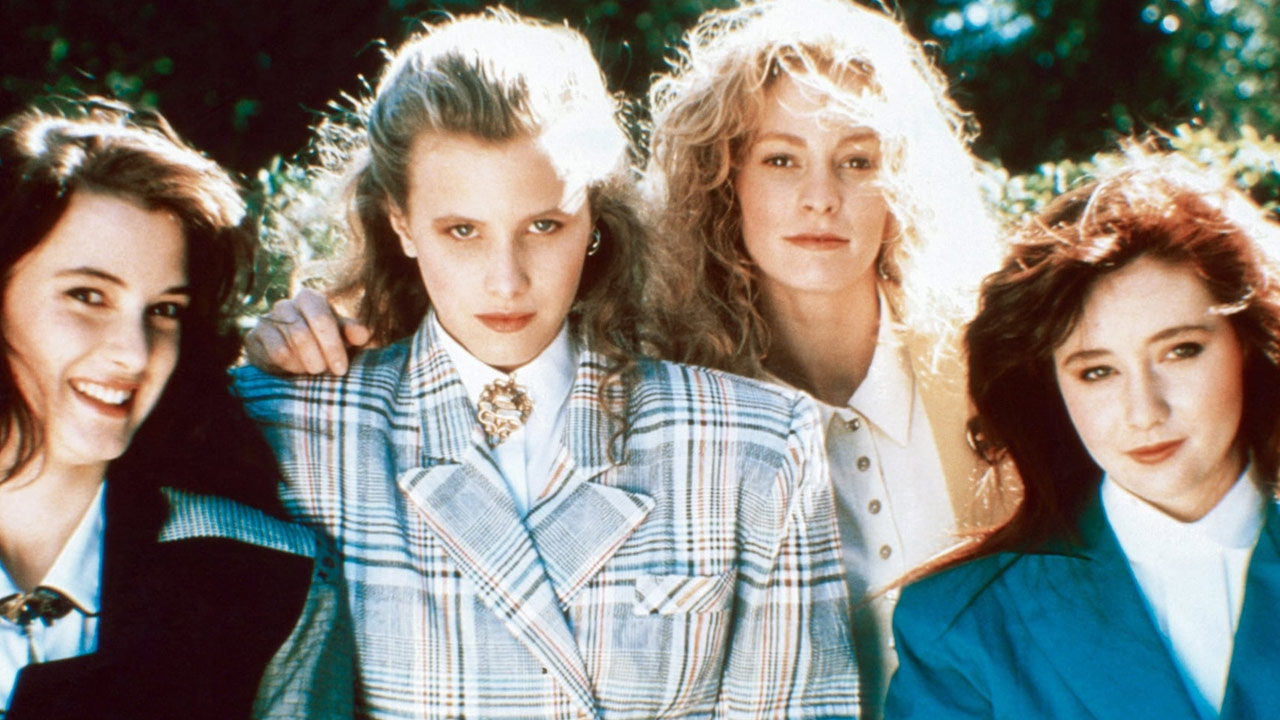
Heathers (1988)
The comedy is so dark a prefix such as “black” barely begins to cut it. This 1988 cult flick is up there with Election and Mean Girls as one of the great high school-set classics—with a more potent air of irreverence. Winona Ryder joins a clique of students called the “Heathers” while Christian Slater plays the demon on her shoulder, encouraging her to kill them.

Hey Arnold! The Movie (2002)
Best suited to younger audiences, Tuck Tucker’s feature-length spin-off of the hit TV show has the titular character (voice of Spencer Klein) fight to save his neighbourhood from a dastardly developer, entering plot situations that parody espionage movies. None of it makes much sense, but the tone is unerringly good-natured and at all times the film feels lovingly crafted.

Hot Fuzz (2007)
Edgar Wright has great flair for innovative visual expression and narrative economy. The second instalment in his beloved Three Flavours Cornetto Trilogy is a genre-bending buddy cop comedy about a London police officer (Simon Pegg) relocated to a boring, sleepy village. Boring that is until all those gruesome killings happen. Few filmmakers direct comedy as creatively and interestingly as Wright.
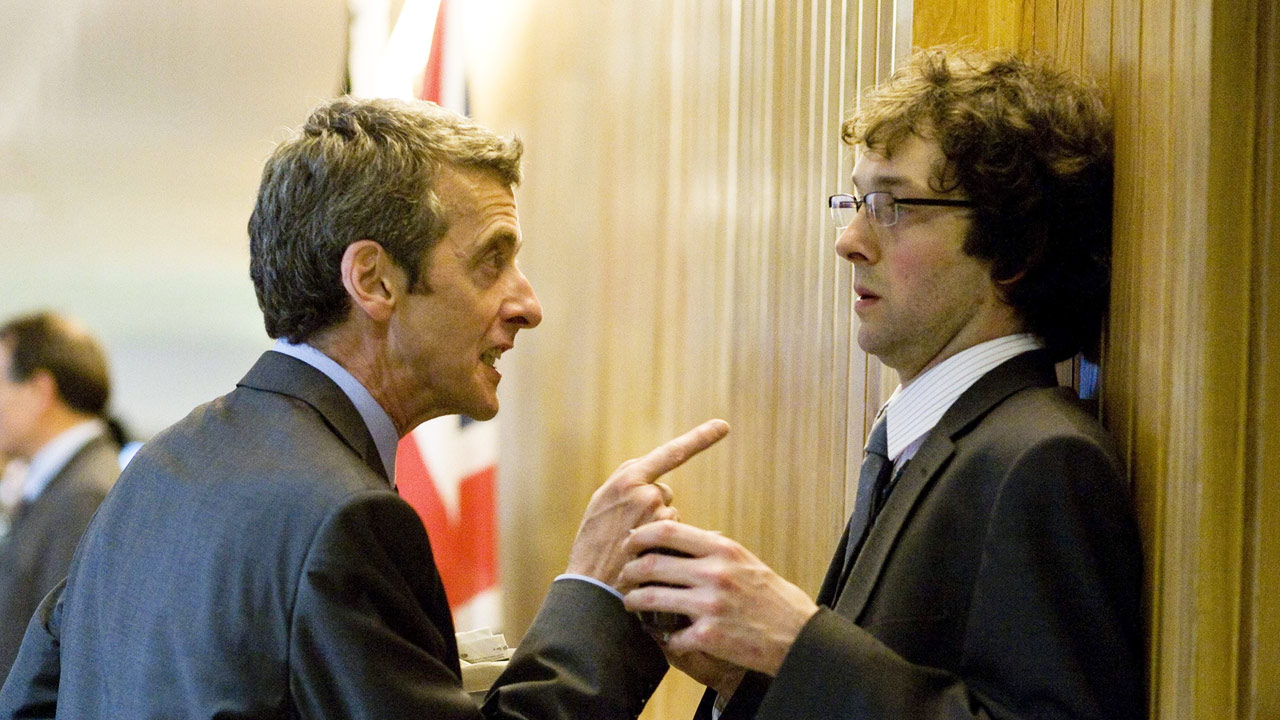
In the Loop (2009)
Armando Iannucci plonks viewers in the backrooms of power and spin-doctoring as the UK prepares to enter a war in the Middle East. The inimitable Malcolm Tucker (Peter Capaldi) leaps from the screen, hissing and yelling about purviews and lubricated horse cocks. We wouldn’t want it any other way.
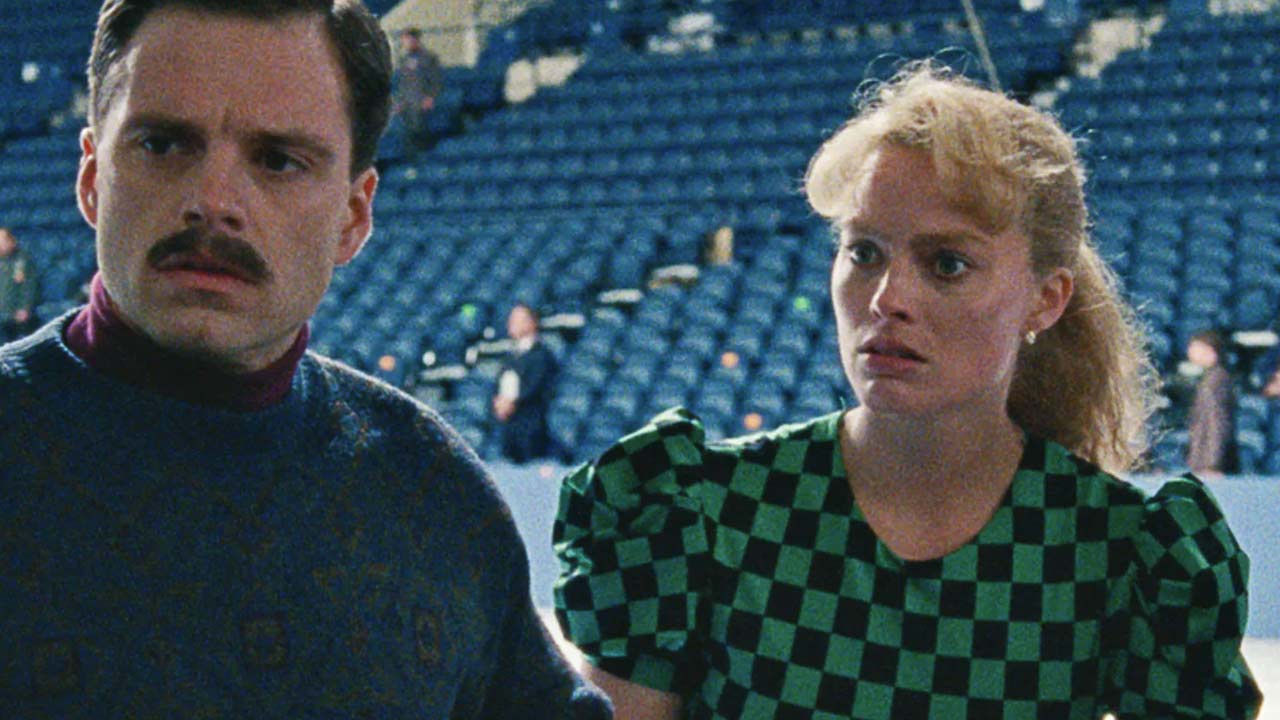
I, Tonya (2017)
Margot Robbie’s celebrity-shedding performance is the centre of this real-or-not? biopic about disgraced figure skater Tonya Harding. Director Craig Gillespie questions who is to blame for the knee-capping incident for which the athlete is best remembered, taking a fourth-wall-breaking approach that crackles and fizzes. The film’s most compelling themes run in contrasts: humour and sadness, reality and artifice.
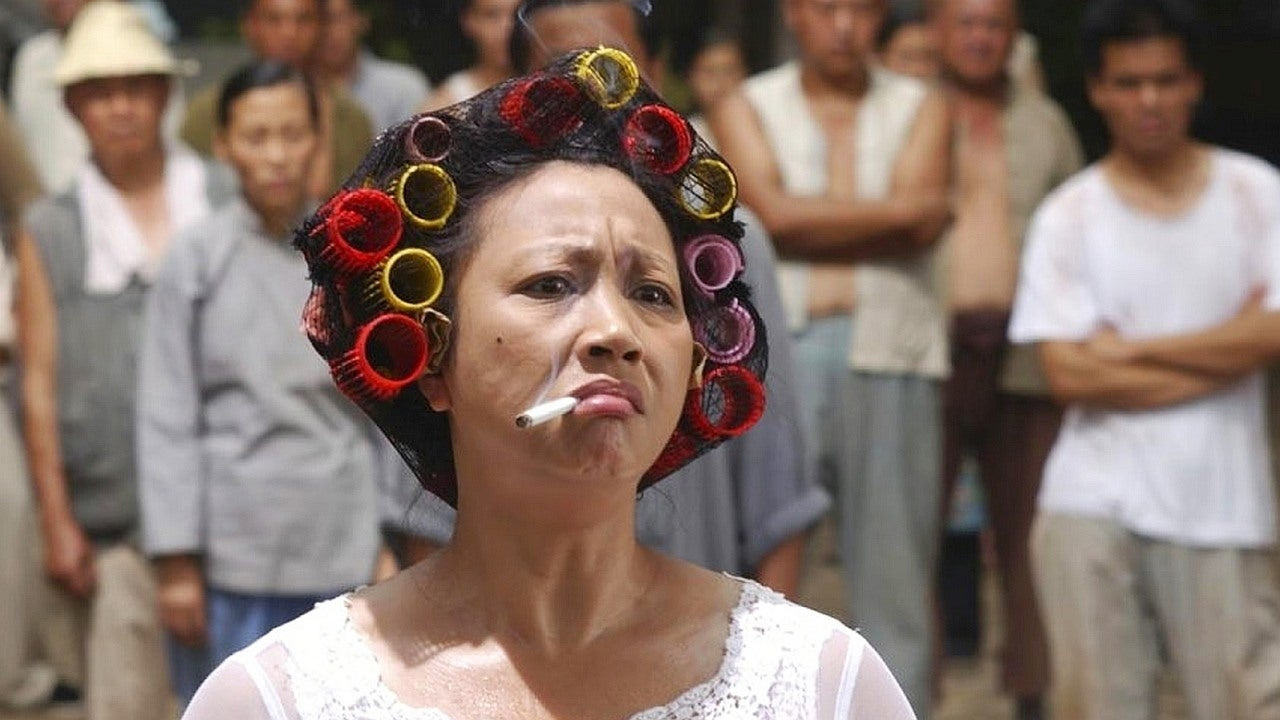
Kung Fu Hustle (2004)
I am far from the first critic to compare Stephen Chow’s visually zany chopsocky period movie to a Looney Tunes cartoon, but sometimes the collective wisdom gets it right. Chow (also the writer and director) plays a blunderous small-time con artist who, in a rural slum in China in the 1940s, becomes embroiled in an epic brouhaha between the murderous “Axe Gang” and a trio of genuine kung fu masters. The story is fine; the execution is delightful.

Lady Bird (2017)
Greta Gerwig’s beautifully constructed dramedy opens with a Joan Didion quote: “Anybody who talks about California hedonism has never spent a Christmas in Sacramento.” Her big-hearted and sensitively drawn film, charting the chaotic coming-of-age of Christine aka Lady Bird (Saoirse Ronan) is full of small acts of defiance. It’s about commanding respect when you don’t deserve any, and asking others to believe in you when you don’t believe in yourself.
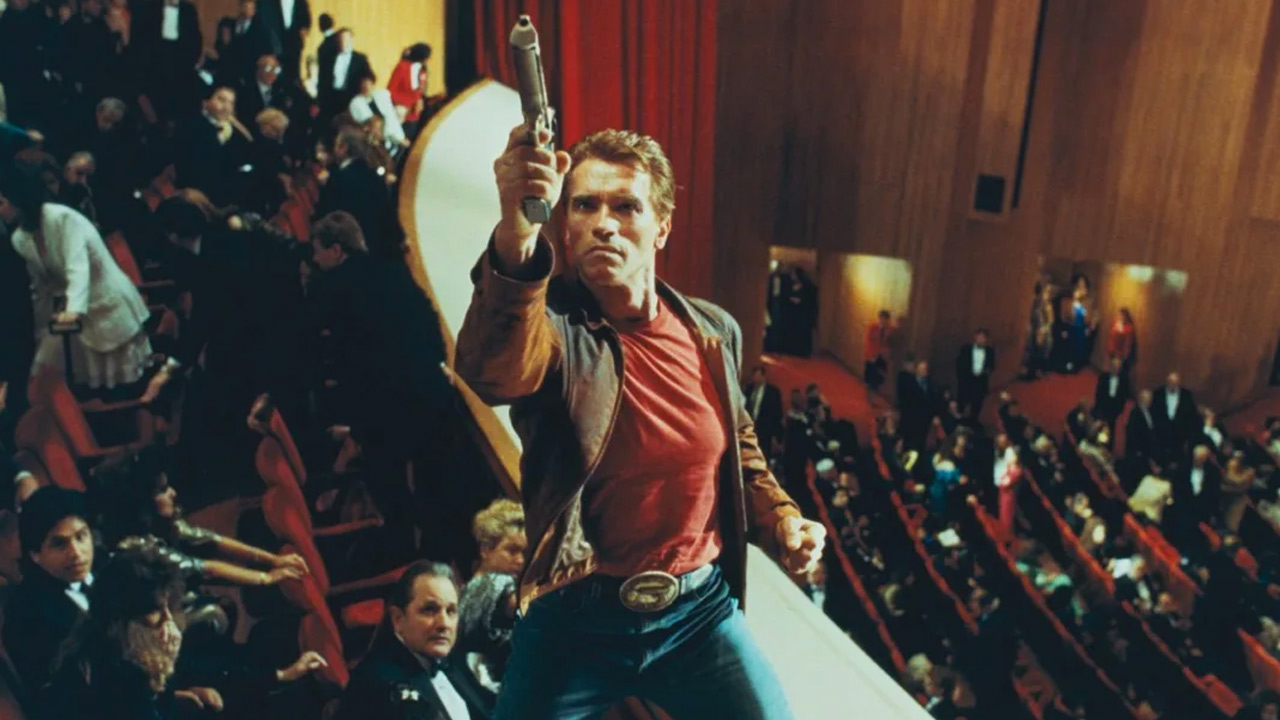
Last Action Hero (1993)
While driving a convertible with no hands (naturally) Arnold Schwarzenegger fires a bullet at an assailant. This inadvertently causes an ice cream cone to kill a man by flying into the back of his head. “Iced that guy,” says Arnie, “to cone a phrase.” Best or worst one-liner ever? Last Action Hero is nothing if not self-conscious. The film—about an 11-year-old kid who enters an alternate universe—is half-hearted as a satire but trashily enjoyable.
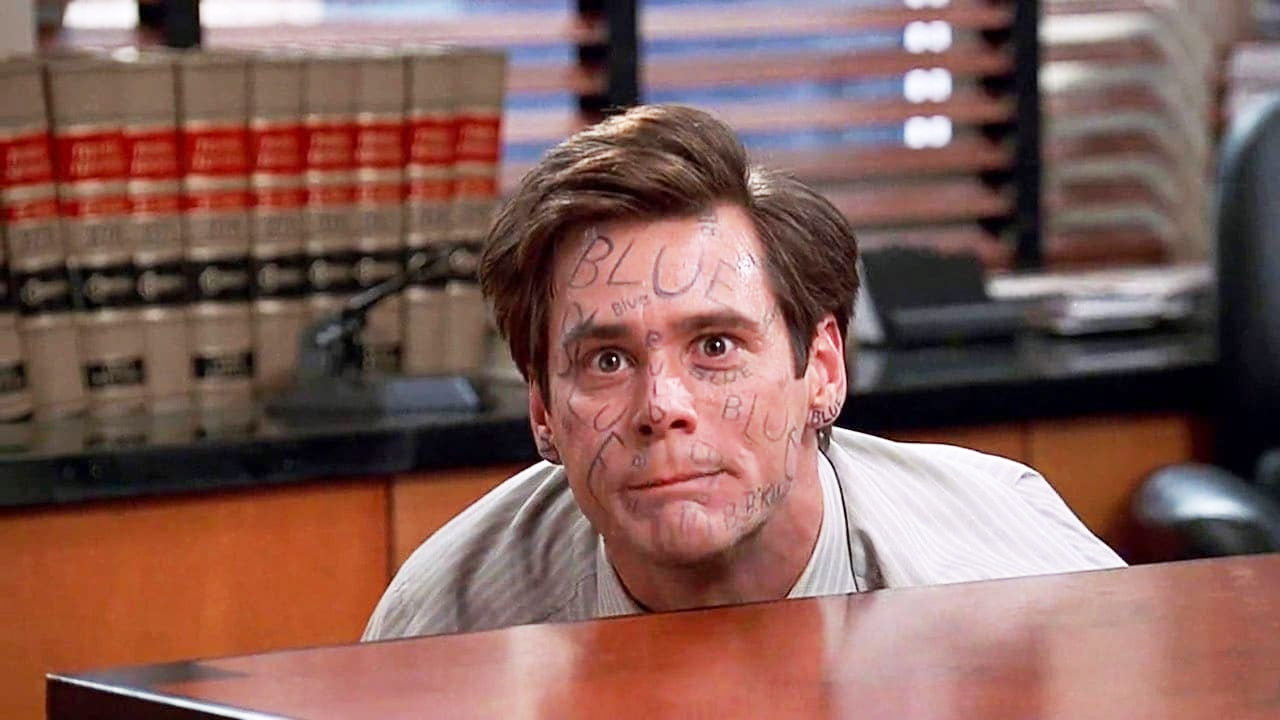
Liar Liar (1997)
Arriving in 1997, the period of peak Jim Carrey, this wildly charming court room comedy places the star’s unique qualities—the elastic physicality, that thunderously loud cartoon voice—inside a sentimental narrative. The premise is hinged on a child’s birthday wish: that his high-flying lawyer father, a compulsive liar, must tell the truth for a single day. Cue hilarious proclamations such as “the god damn pen is blue!”
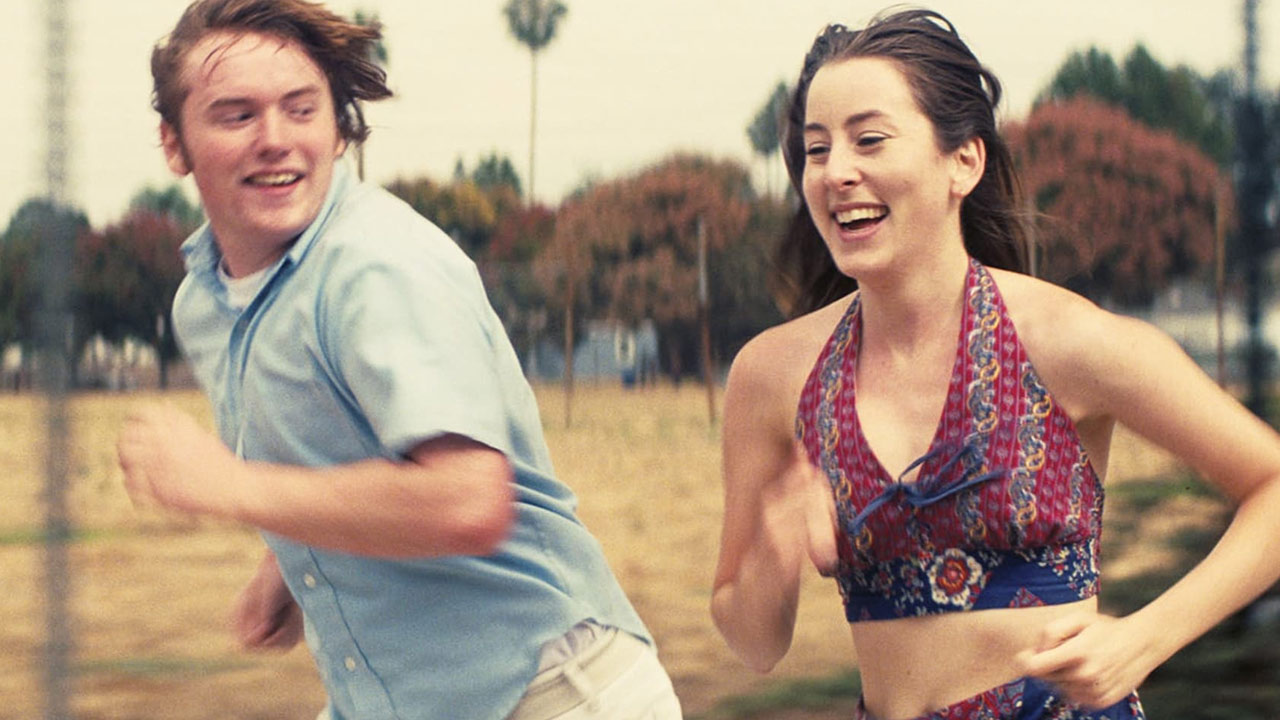
Licorice Pizza (2021)
Paul Thomas Anderson doesn’t often do comedy, but when he does he hits a laidback idiosyncratic beat that gels very well—here, as in Punch-Drunk Love and Inherent Vice. The stars of Licorice Pizza—Alana Haim and Cooper Hoffman—share oddly appealing chemistry, playing potential lovers with a significant age gap between them (being 25 and 15 respectively).
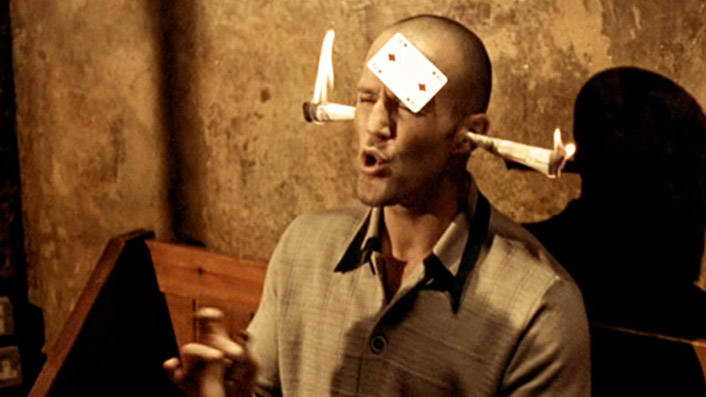
Lock, Stock and Two Smoking Barrels (1998)
When cardshark Eddy (Nick Moran) loses big in a rigged poker game, he and his pals set out to settle their debts by stealing from weed dealers. Surprise surprise, there are complications. The various elements of Guy Ritchie’s cockney gangster movie really gel: the snappy performances, the even snappier dialogue, the washed-out cinematography, the disciplined and energetic editing. It’s Ritchie’s first film and it remains his best.
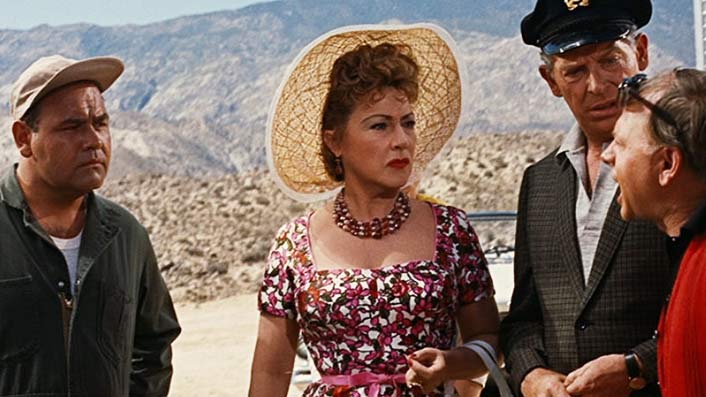
It’s a Mad, Mad, Mad, Mad World
This preposterously entertaining 1963 farce is in effect one great big chase scene. A group of strangers scramble to locate what they believe to be buried loot, triggering an unsubtle message about greed. The running time is long but the pace is eruptive, with various kinds of slapstick—from vehicular mayhem to the ol’ slipping on a banana peel routine.
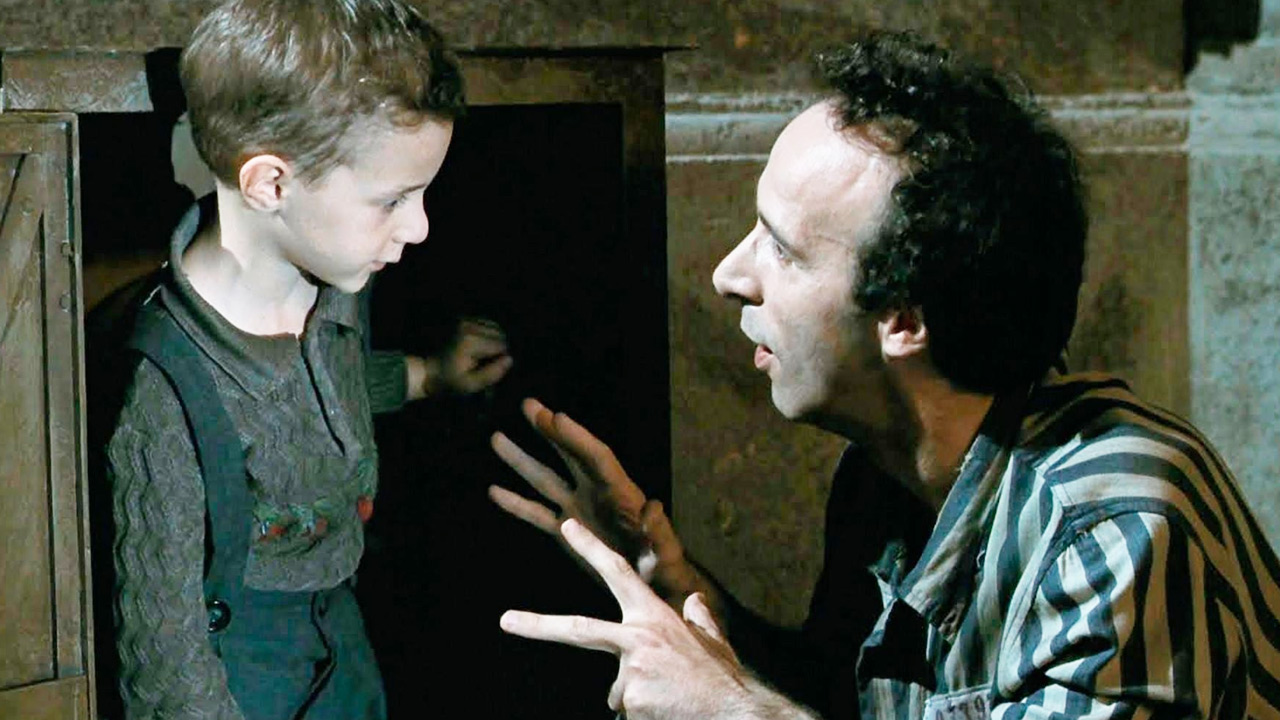
Life is Beautiful (1997)
Buongiorno principessa! Rarely do light and dark come together so exquisitely, and with such force as in Roberto Benigni’s WWII tragicomedy about a jokester (Benigni) who hides the truth of being imprisoned in a concentration camp to his son, by pretending it’s all make believe. You laugh while your stomach turns.
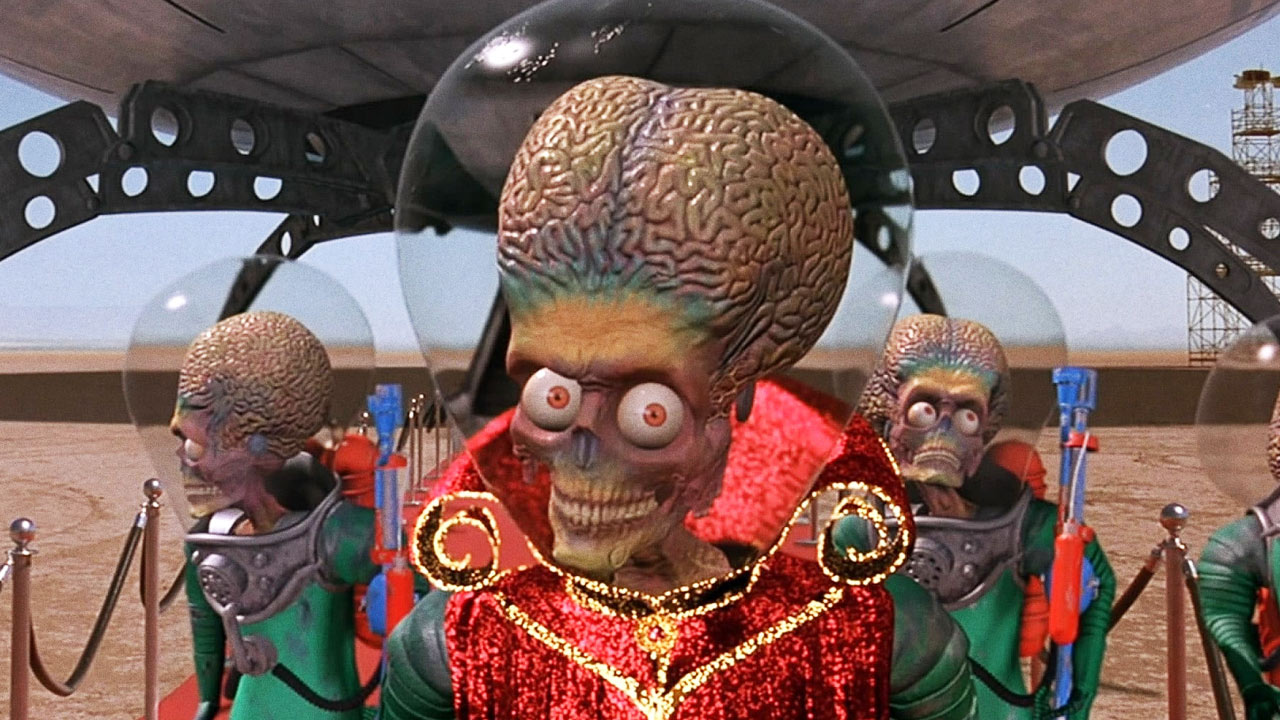
Mars Attacks! (1996)
Tim Burton salutes the midnight movies of yesteryear while conjuring his own kind of cartoon zaniness, which still feels fresh. The world is captivated by the impending arrival of martians but soon discover these wily little critters don’t come in peace. Jack Nicholson gets a dual role (as the US president and a sleazeball from Vegas) in a seriously stacked cast that includes—deep breath—Glenn Close, Annette Bening, Michael J Fox, Pierece Brosnan, Natalie Portman, Danny DeVito, Martin Short and Sarah Jessica Parker.
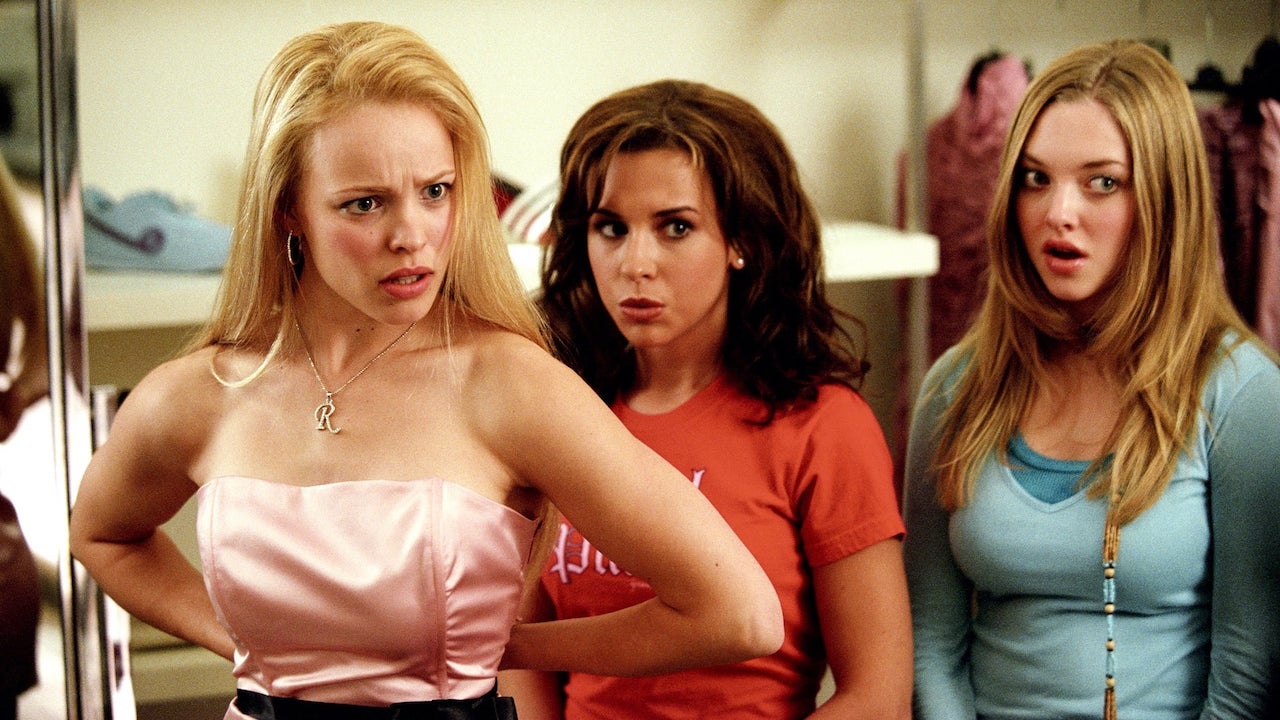
Mean Girls (2004)
The spritzy, prickly dialogue in Tina Fey’s very sassy Mean Girls script is delivered by the cast faster than usual, in the great tradition of screwball comedies. Lindsay Lohan is the new kid on the block at an Illinois high school, unwittingly thrust into a cutthroat classroom hierarchy. Director Mark Waters eschews the familiar gloss covering teen movies in favour of an edgier approach. It’s imminently rewatchable.
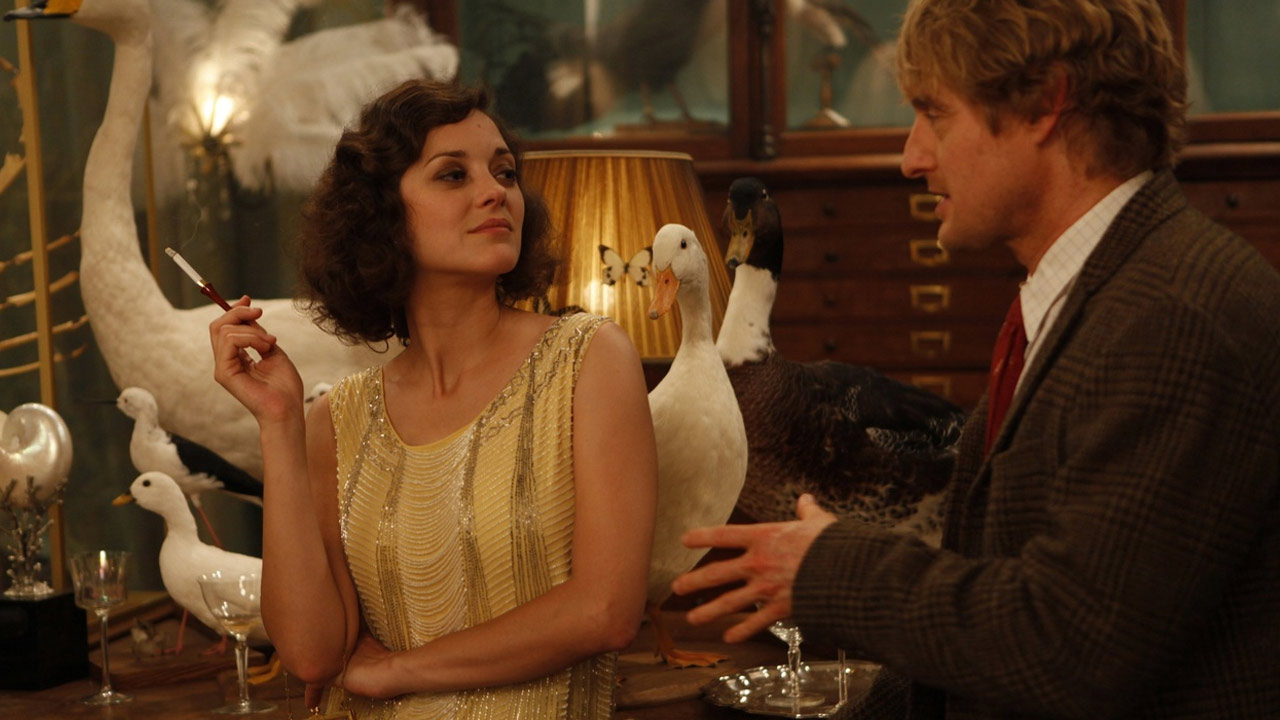
Midnight in Paris (2011)
Woody Allen’s enchanting rumination on art, romance and history follows a well-off writer (Owen Wilson) transported back in time to the 1920s while strolling the streets of Paris. Soon he meets the likes of Ernest Hemingway and F Scott Fitzgerald then falls in love with Picasso’s mistress (Marion Cotillard). Midnight in Paris contemplates the foggy charms of nostalgia, finding a fresh perspective on romanticizing the past.
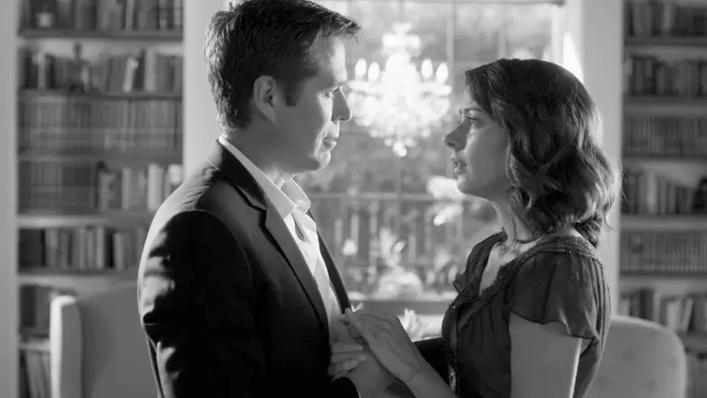
Much Ado About Nothing (2012)
The dialogue in Joss Whedon’s low budget, black and white adaptation of The Bard’s famous comedy remains untouched despite a contemporary setting, adding an interesting schism between old and new. Those rich, dense, melodic monologues flow as abundantly as the generous portions of wine the characters quaff. This elegantly constructed film feels colourful despite its muted palette and grand despite its limited settings.
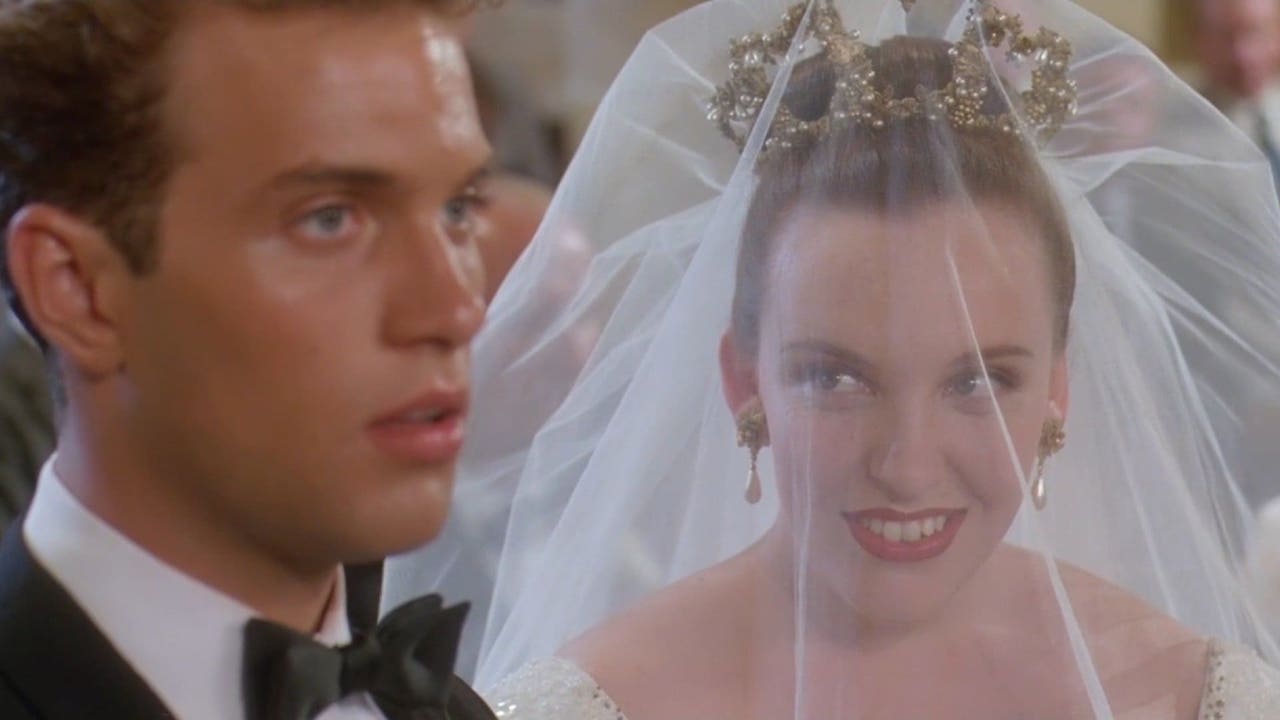
Muriel’s Wedding (1994)
PJ Hogan’s portrait of a love-hungry sad sack, brilliantly played by Toni Collette, has a dark and complicated soul. Muriel (Toni Collette) is, as one character famously puts it, a rather terrible person. The film is a twisted tragicomedy in which weddings are bitterly ironic and beautiful friendships are squandered. Collette makes dweebiness dangerous, and turns self-pity into flagellation.
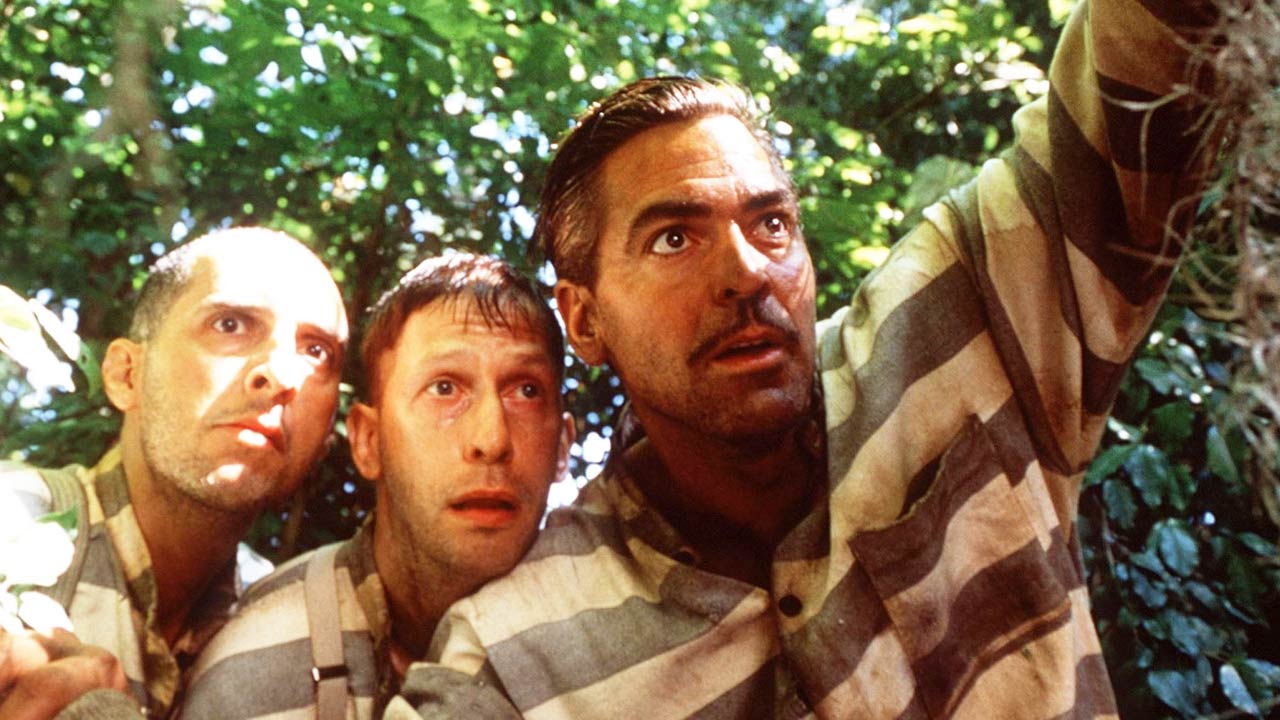
O Brother, Where Art Thou? (2000)
My favourite Coen brothers film is a singular experience: a delightfully funny and witty musical celebration of American folklore, by way of ancient Greek literature (loosely adapting Homer’s The Odyssey). George Clooney leads a trio of nitwit escaped convicts across rural Mississippi circa the Great Depression, tricking them into helping him locate his estrange wife. Farce, folly, and thigh slappin’ tunes abound.
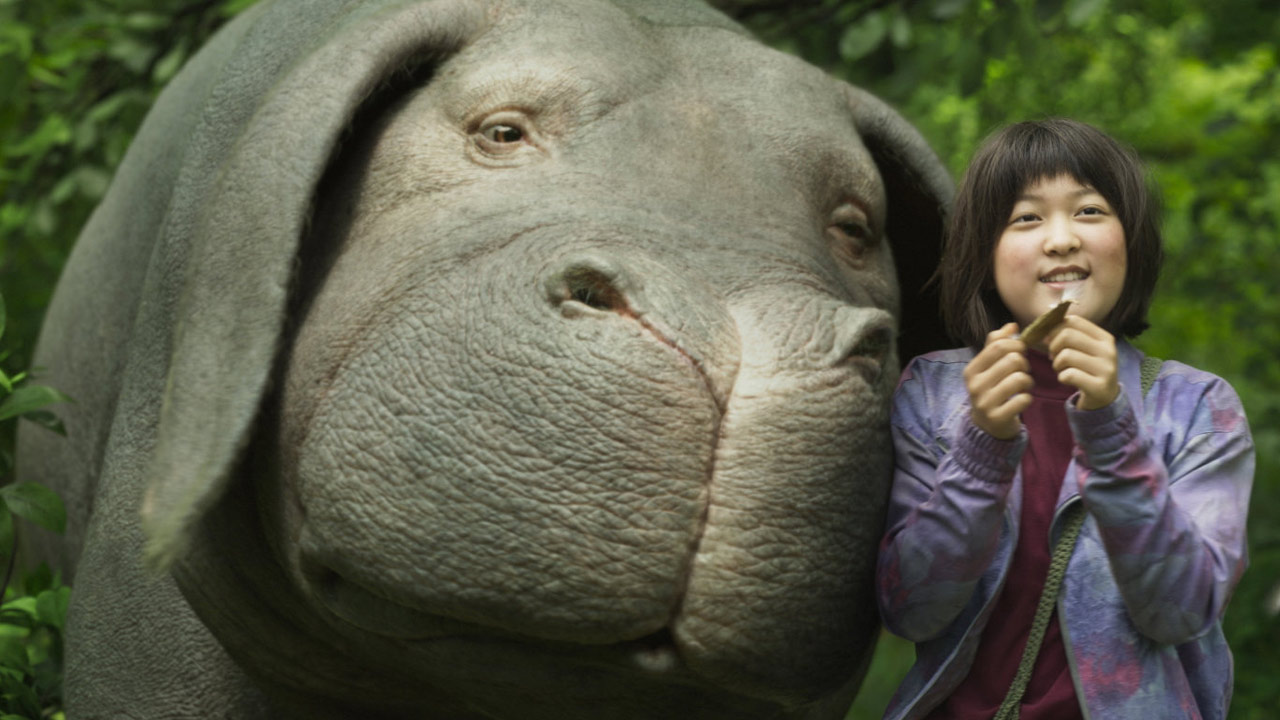
Okja (2017)
Tilda Swinton plays the Willy Wonka-esque CEO of a company that produces a not-so-sweet product: giant genetically engineered pigs to carve up and sell worldwide. Chaos ensues when a young girl (Seo-Hyun Ahn) puts up a fight to save the titular character’s bacon. There’s Spielbergian largesse in Bong Joon Ho’s brisk direction, but he goes places Spielberg wouldn’t—with prickly messages about anti-meat consumption and corporate malfeasance.

Paddington 2 (2017)
The beloved marmalade addict became an allegorical stand-in for outsiders in general and refugees in particular in 2014’s Paddington and its even better sequel. The protagonist is embroiled in a crime caper involving a highly valuable pop-up book and Hugh Grant as an irresistibly hammy villain. Director Paul King’s visual approach is informed by great films of the silent era, such as Charlie Chaplin’s Modern Times.
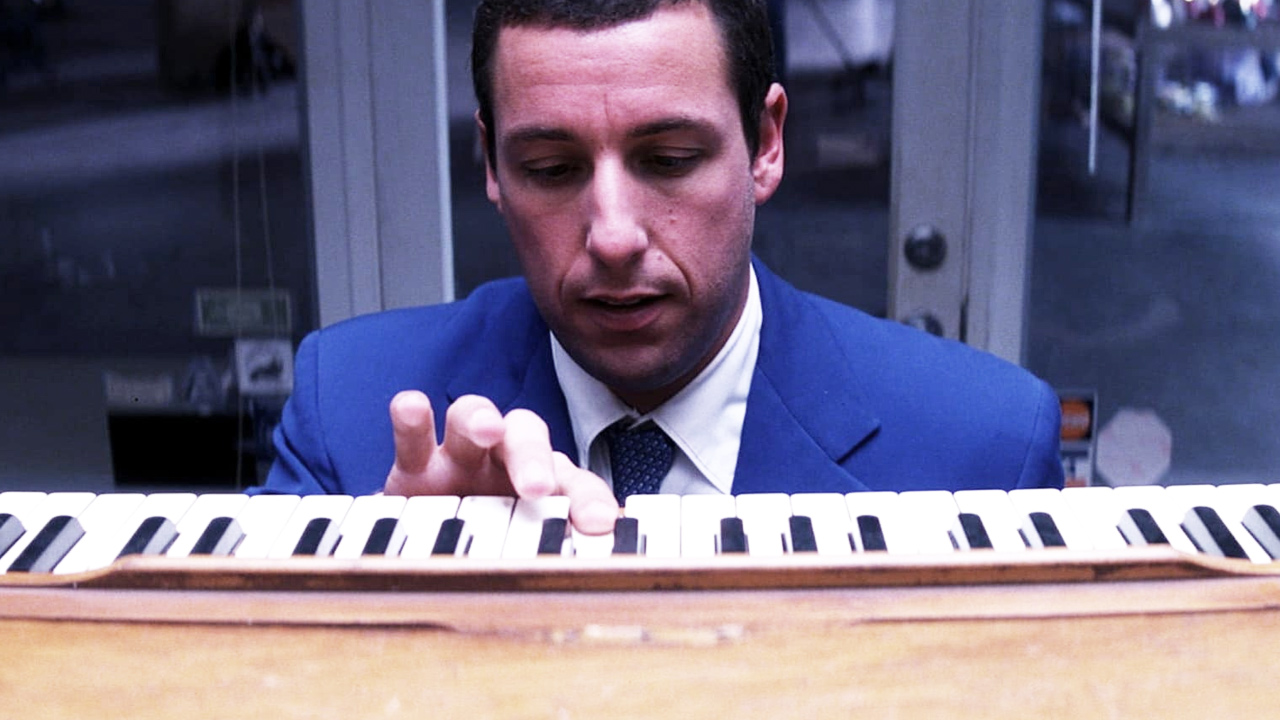
Punch-Drunk Love (2002)
Paul Thomas Anderson’s left-of-field rom-com matches Adam Sandler’s awkward, coupon-collecting small business owner with Emma Watson’s sweet executive. From an unexpected early appearance of a harmonium the film is delightfully unpredictable. Its most impressive achievement is tonal, with a surreal quality that feels almost like visualisation of music: as if you can hear the colours and see the melody.
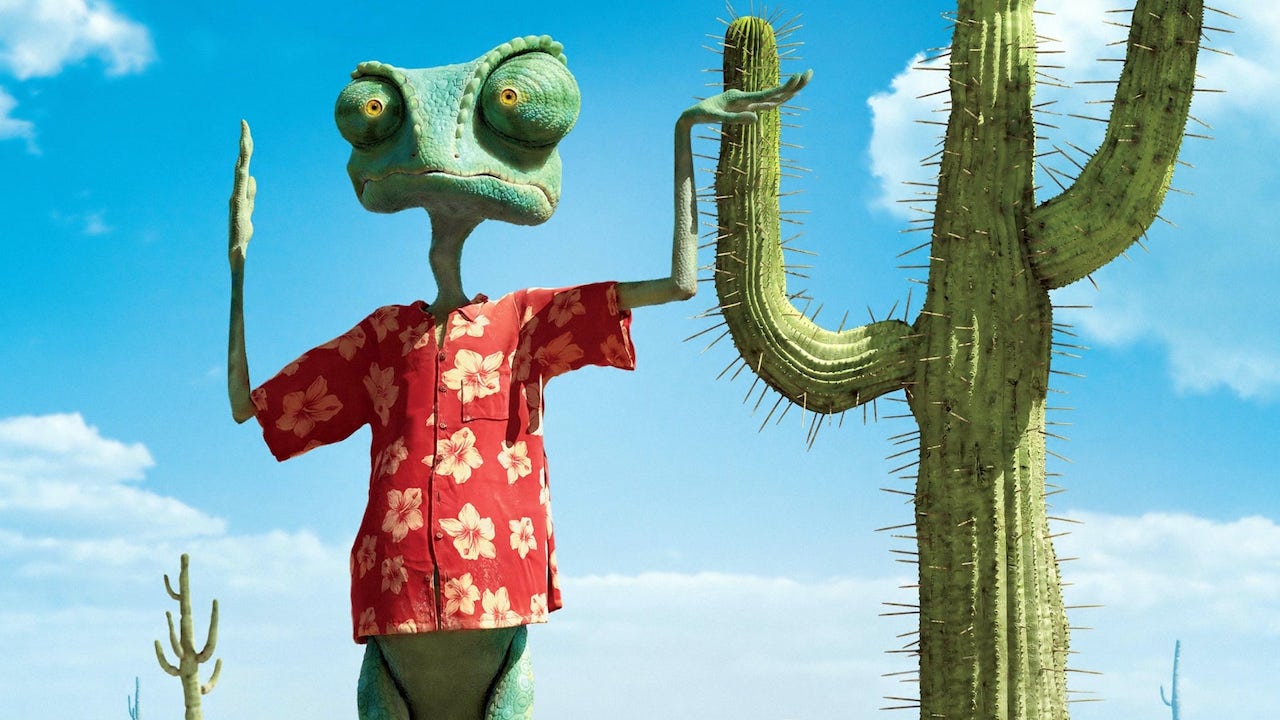
Rango (2011)
Just your average, everyday story about a thespian lizard who becomes sheriff of a desert town and unearths a conspiracy depriving it of water. You might call the protagonist a “Hero with no Name” (a la Clint Eastwood in the Dollars trilogy) character, except he gives himself a name—Rango—and a legend to live up to. An episodic, spaghetti western-homaging plot settles into noir-ish rhythms, with several laugh-out-loud moments along the way. Exclaims one old-timer: “Thespian? That’s illegal in seven states!”
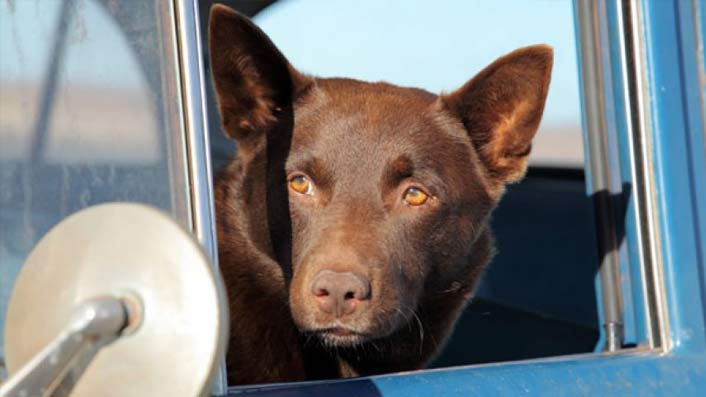
Red Dog (2011)
Kriv Stender’s ode to the power and personality of a great pooch—inspired by a gregarious real-life stray kelpie who was beloved in a small town mining community in the 70s—trots a fine line between sentiment and sop. The director gets the balance right, ultimately providing an emotionally nuanced message for children—about how all things come to an end, but beautiful friendships form a part of who we are.
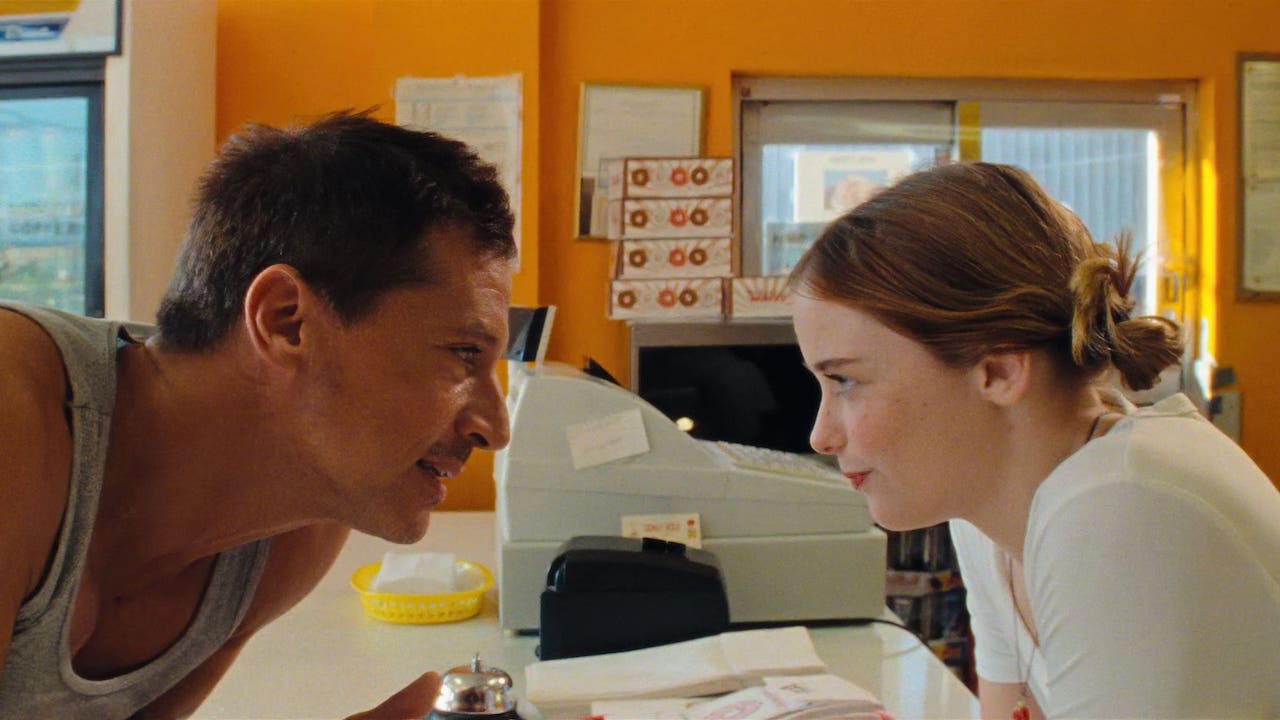
Red Rocket (2021)
More funny weird than funny ha ha, this typically idiosyncratic film from Sean Baker follows a follows a porn star named Mikey (Simon Rex) who returns to his Texas hometown after his career takes a dive—never to return to the halcyon highs of The Fast and Fury Ass. Baker doesn’t champion bad behaviour nor condemn his protagonist, who starts dealing weed and romances a 17-year-old girl (Suzanna Son). The characters feel totally genuine and fully formed.

School of Rock (2003)
Jack Black’s characteristically boisterous performance as a heavy metal guitarist who becomes a substitute music teacher, leading a bunch of lovable pipsqueaks to a battle of the bands competition, fits this film so well he gives the impression of having shaped the entire thing in his image. The story is archetypal but the energy of the cast is infectious, writer/director Richard Linklater’s earnest approach matching head with heart—while rocking out.
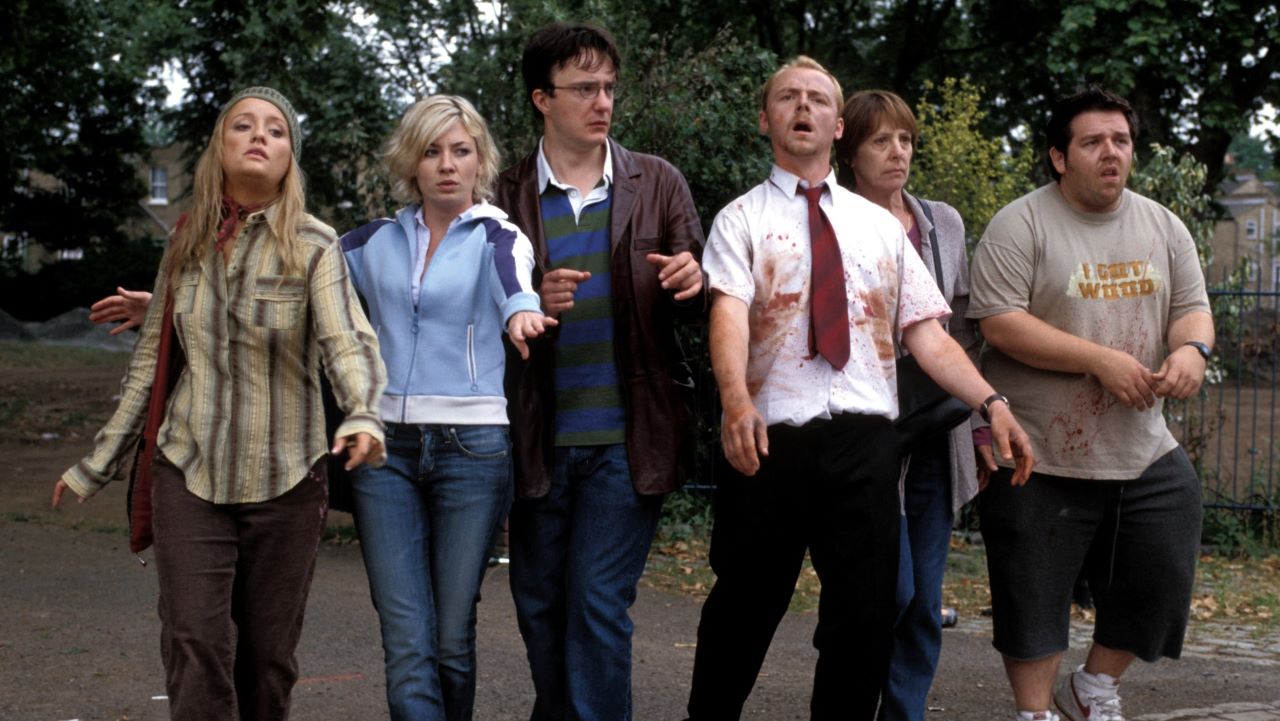
Shaun of the Dead (2004)
You’ve got red on you! Edgar Wright’s zany rom-zom-com (romantic zombie comedy) introduced us to the director’s innovative, compact approach to visual comedy, making the entire form and structure of the film in on the joke. Schmucky salesman (Simon Pegg) is dumped by his girlfriend (Kate Ashfield) but his personal apocalypse is nothing compared to what’s happening outside, when the dead rise up and get bitey.
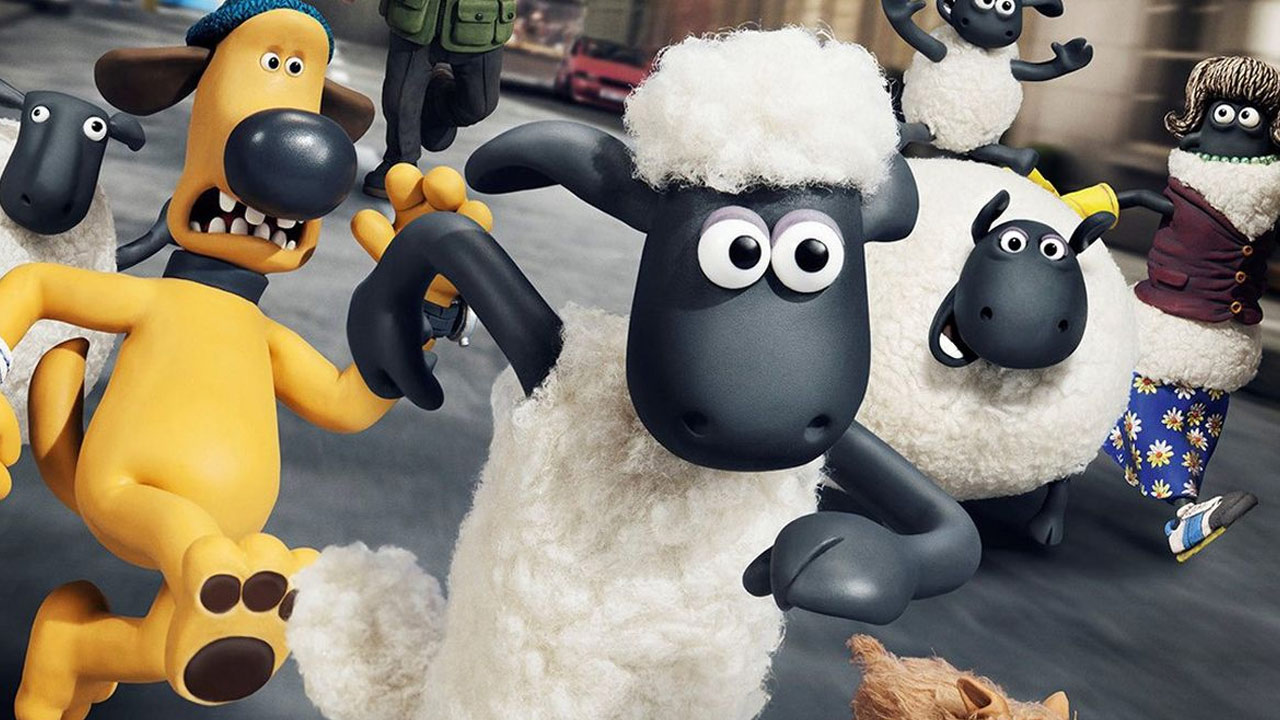
Shaun the Sheep Movie (2015)
The titular character’s dialogue-free movie spin-off sends Shaun and co to the big city, on a mission to find and return their amnesia-afflicted farmer. Evoking the craftsmanship of great silent era comedies, in addition to stylistic and thematic inspirations ranging from Jacques Tati to Luis Buñuel, co-directors Mark Burton and Richard Starzak construct a delightful work of art: spirited, lively, inventive, humane.
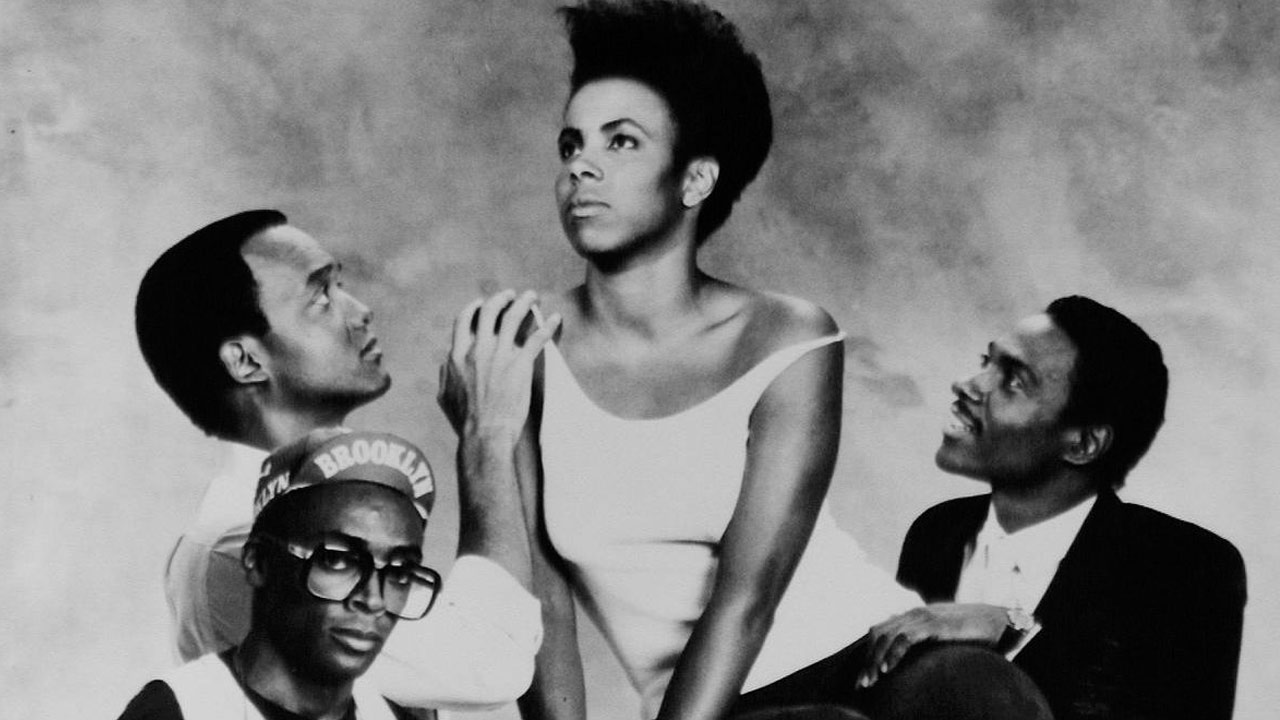
She’s Gotta Have It (1986)
Shot on a shoestring budget over a couple of weeks, Spike Lee’s film about a polyamorous woman with three lovers is regarded as a breakthrough in depictions of African Americans (focusing on urbanites, intellectuals and deep thinkers) as well as in the American indie movement more broadly. Lee dabbles with different styles, including documentary techniques, in an affecting early work that has the decorum-breaking chutzpah of a young iconoclast.
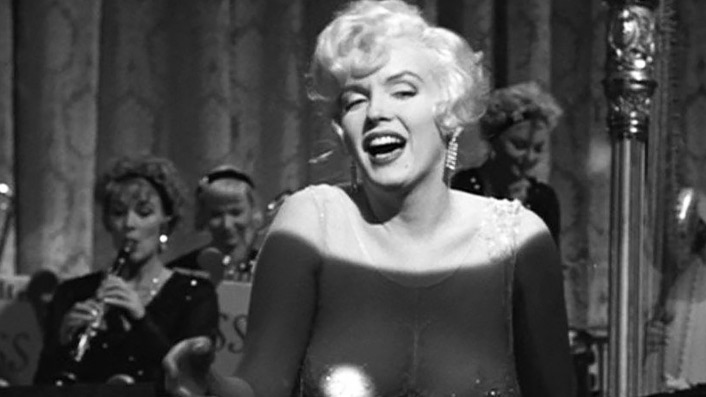
Some Like it Hot (1959)
“Nobody’s perfect” is the famous final line in Billy Wilder’s 1959 comedy jewel, which delights, surprises and tickles funny bones until the very end. In a gender and sexual identity-bending on-the-run narrative, Jack Lemmon and Tony Curtis play cross-dressing musicians who hang out with Marilyn Monroe. What a stunning presence Monroe brings, taking the emotionally vulnerable sexy naif archetype in lovely, heartfelt directions.
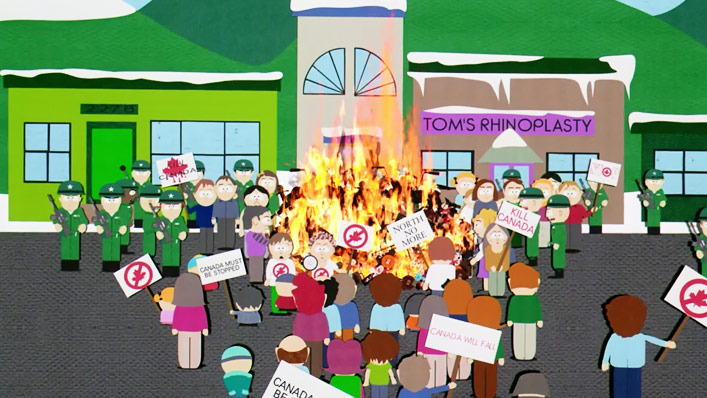
South Park: Bigger, Longer & Uncut (1999)
After being caught watching a naughty movie—containing poetic reflections such as “shut your fucking face uncle fucker”—the South Park kids inadvertently summon the devil and damn near cause the apocalypse. Trey Parker and Matt Stone’s big screen spin-of of their weirdly enduring TV show is raucously loud and silly, and also kind of brilliant—with rambunctious wit and stupidly catchy songs.
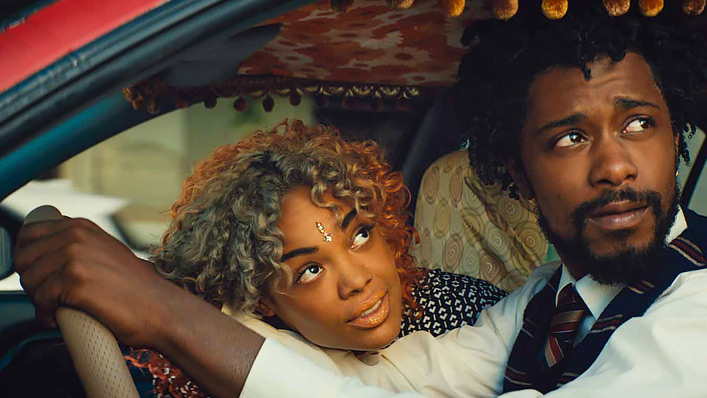
Sorry to Bother You (2018)
A sassy critique of capitalism, with notes of Pinocchio, told through the prism of one man’s attempt to climb the rungs of telemarketing hierarchy. Now there’s a sentence you don’t write everyday. Writer/director Boots Riley wittily tosses around situational and cultural absurdities, balancing satire with the surreal while making uncomfortable observations about racial inequality in America. Lakeith Stanfield is an endlessly likeable lead whose face seems to say: “I no longer know what world I’m even pretending to be part of.”
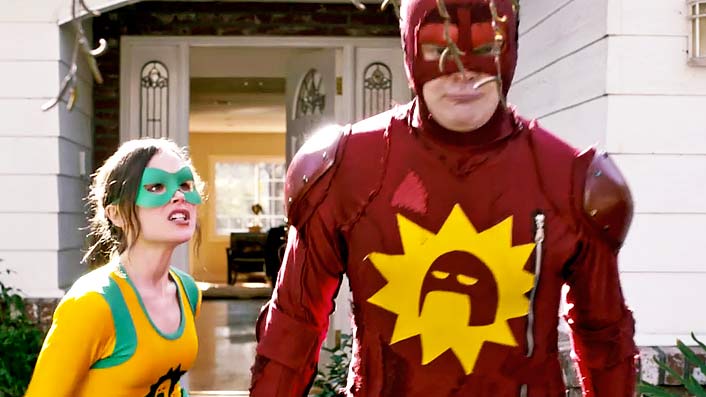
Super (2011)
The funniest superhero movie of all time explores a connection rarely made in this genre, between vigilantism and mental illness. An outrageously entertaining Rainn Wilson—accompanied by an equally outrageous Ellen Page—embarks on a mission to “shut up crime” after his wife (Liv Tyler) leaves him for a sleazy drug dealer (Kevin Bacon). Super delights in offering no moral assurances of any kind—even that good and evil exist in the first place.
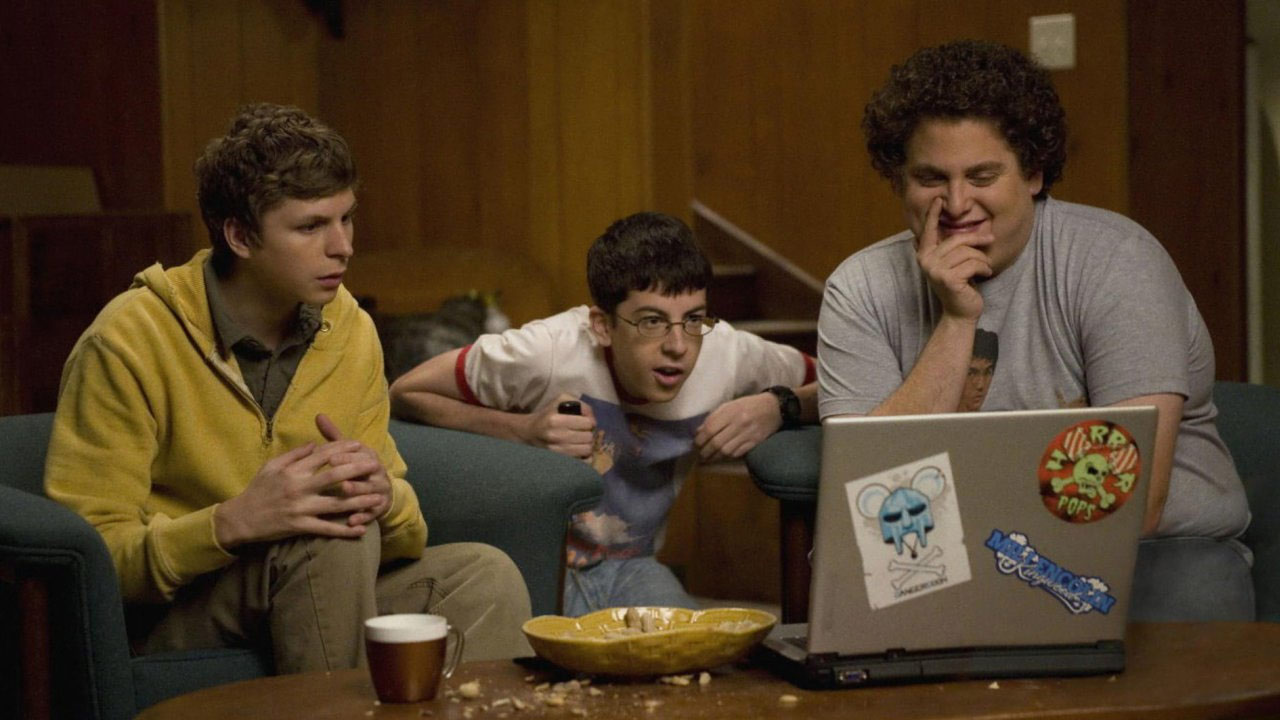
Superbad (2007)
There’s a dangerous energy in Greg Mottola’s potty-mouthed coming-of-age flick, which gets away with a lot in the name of characterization. Seth (Jonah Hill) and Evan (Michael Cera) talk trash, going to the parties and getting wasted, in a film that balances earnestness and obscenity in surprisingly effective ways. Plus there’s McLovin; long live McLovin!
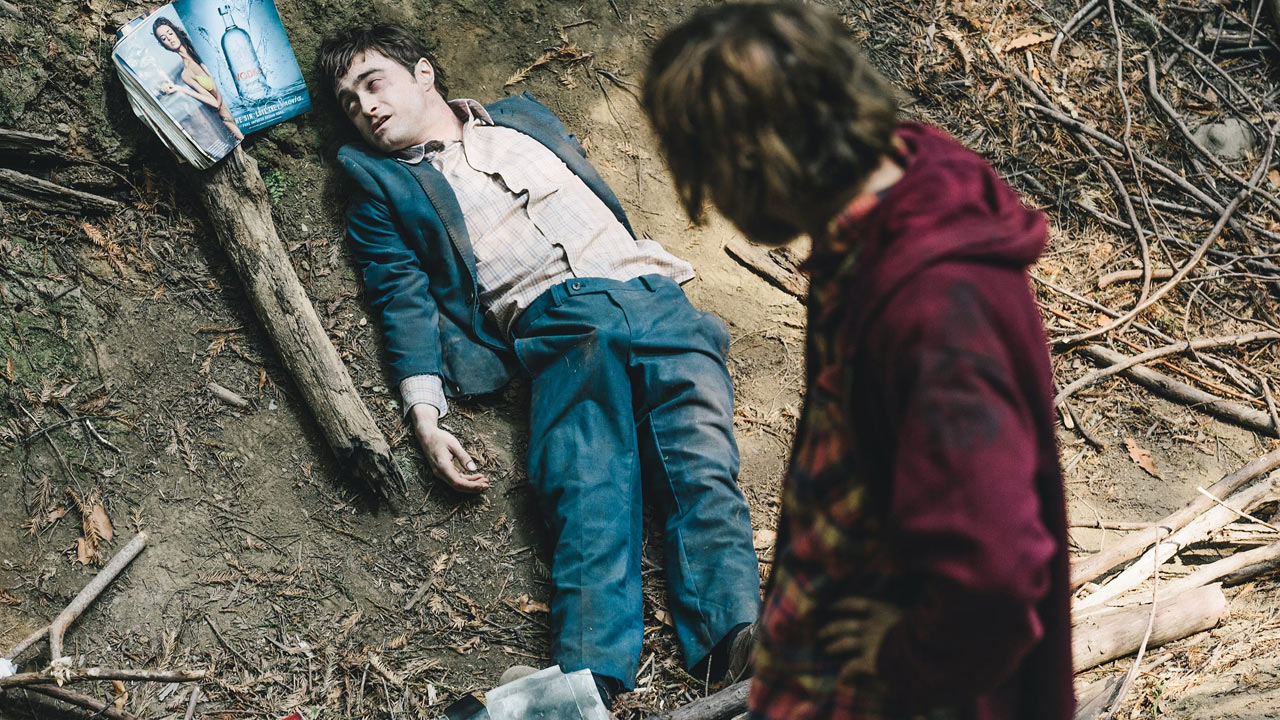
Swiss Army Man (2016)
Affectionately known as the “farting corpse movie.” Or, for a more nuanced description, “the farting boner corpse movie.” Daniel Radcliffe plays said corpse, who’s lugged across wilderness by a ratty looking Paul Dano. The protagonist is totaly non compos mentis, like the film itself—once seen and, as they say, never forgotten.

Ted (2012)
Uproarious non-PC comedy is par for the course for Seth MacFarlane, summoning to life a lewd bong-smoking teddy bear who is besties with Mark Wahlberg. The film’s subtext (yes: it has one) plays out like a reverse Toy Story. Instead of saying goodbye to aspects of childhood, formative experiences transmogrify into forces that stunt a person’s growth as an adult. It’s highly entertaining, filthy and facetious.

Up in the Air (2009)
George Clooney is superb as an unflappably slick “career transition counselor” whose job is to fly across America firing people. His business is booming while the economy is flailing. Vera Farmiga and Anna Kendrick give very fine supporting performances as a travelling businesswoman and corporate upstart respectively. Jason Reitman’s dramedy is politically pointy, told with the kind of wryness and cynicism one might expect from Billy Wilder. That’s no small compliment.
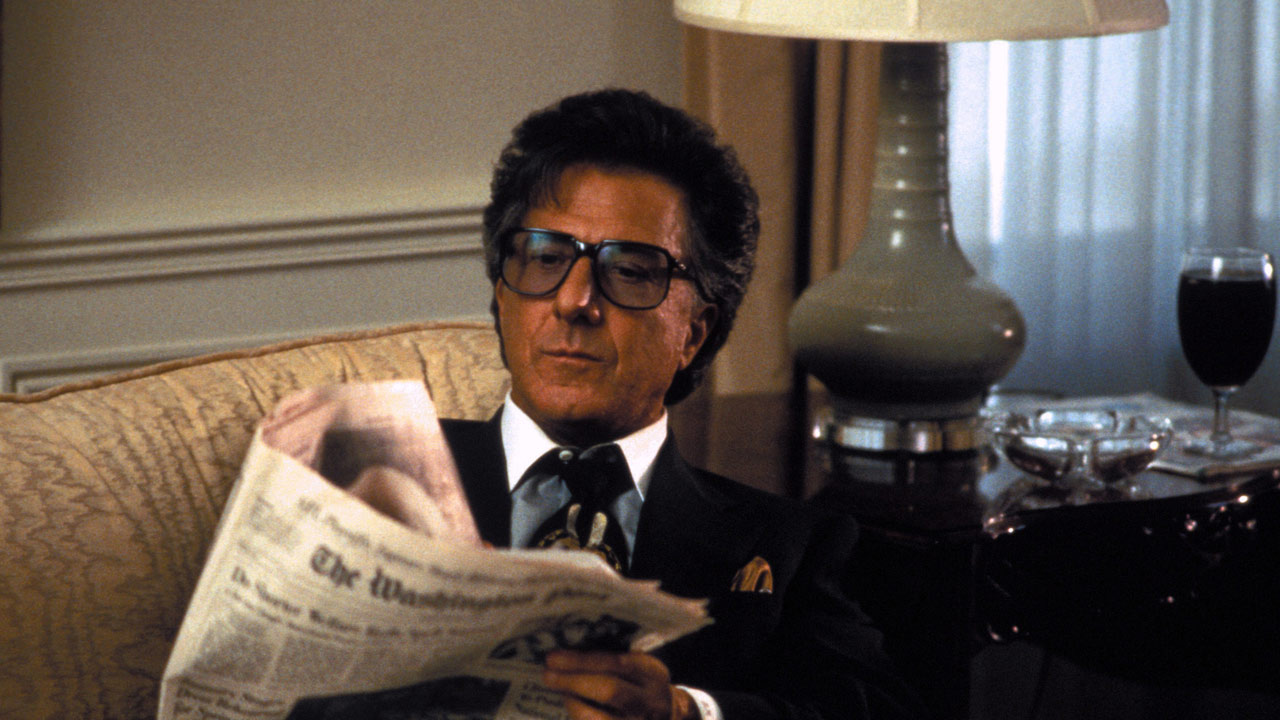
Wag the Dog (1997)
“It’s got nothing to do with the B3 Bomber!” Barry Levinson’s razor sharp satire stars Robert DeNiro as a spin doctor who hires a big shot producer (Dustin Hoffman) to stage an imaginary war—via some good old Hollywood spectacle—to distract from a presidential scandal days before an election. A great script is snappily executed and irresistibly acted, leaving much to think about—though in the post-Trumpian age of misinformation, its once cutting edge commentary feels antiquated.

Wallace & Gromit: The Curse of the Were-Rabbit (2005)
There’s daffy inventions a-plenty—both in the content of the film and its form—in this delightful stop-motion from the brilliant kooks at Aardman Animations. Combining painstaking aesthetic with a midnight movie premise, lovable old Wallace accidentally creates a massive mutant rabbit that terrorizes the town—just in time for its annual giant vegetable competition.
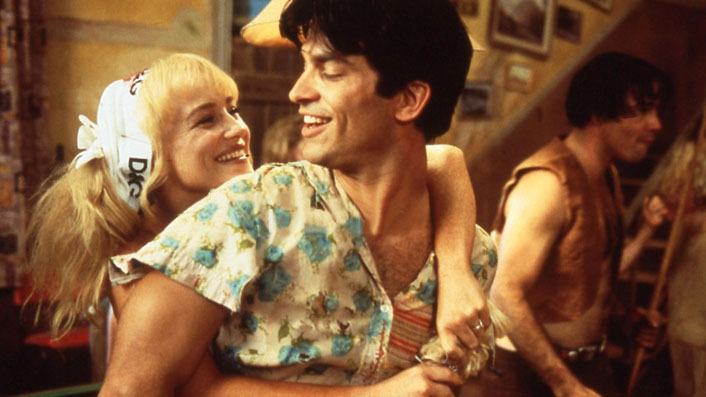
Welcome to Woop Woop (1997)
After Priscilla, Queen of the Desert, Stephan Elliott ramped up his quota of cor-blimey Australianisms, dunking audiences into a bizarro backwater burg where an American visitor (Johnathon Schaech) marriages a local (Susie Porter) then leads a rebellion against the ringleader (Rod Taylor) of a town on the edge of existence. Gloriously kitschy and tongue-in-cheek, Welcome to Woop Woop was massively undervalued by critics at the time of its release.
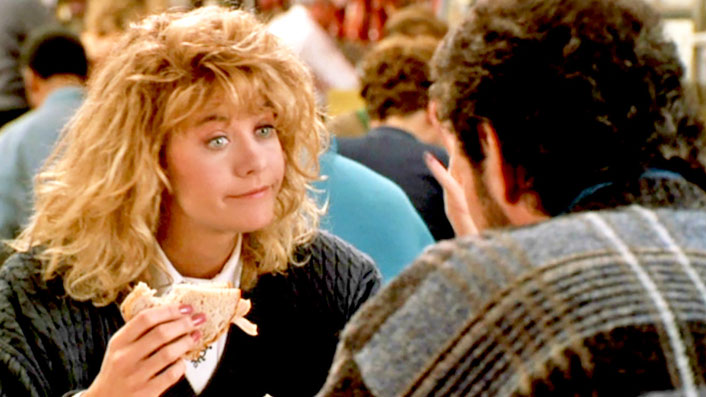
When Harry Met Sally (1989)
One of the great scripts from Nora Ephron explores the platonic then romantic journey of the titular characters (Billy Crystal and Megan Ryan) who take 12 years to fall in love. The famous “I’ll have what she’s having” fake orgasm scene showed audiences that films can break taboos while retaining humour and heart.

The Wolf of Wall Street (2013)
Martin Scorsese dines on tales of personal and corporate excess, not to mention outright misogyny, drawing on the debaucherous memoir of former stockbroker (and convicted criminal) Jordan Belfort. Starring Leonardo DiCaprio as Belfort and Jonah Hill as his right-hand man, hubris and hedonism is the name of the game – in a loud, fast, incongruous film that runs for three frantically paced hours.


